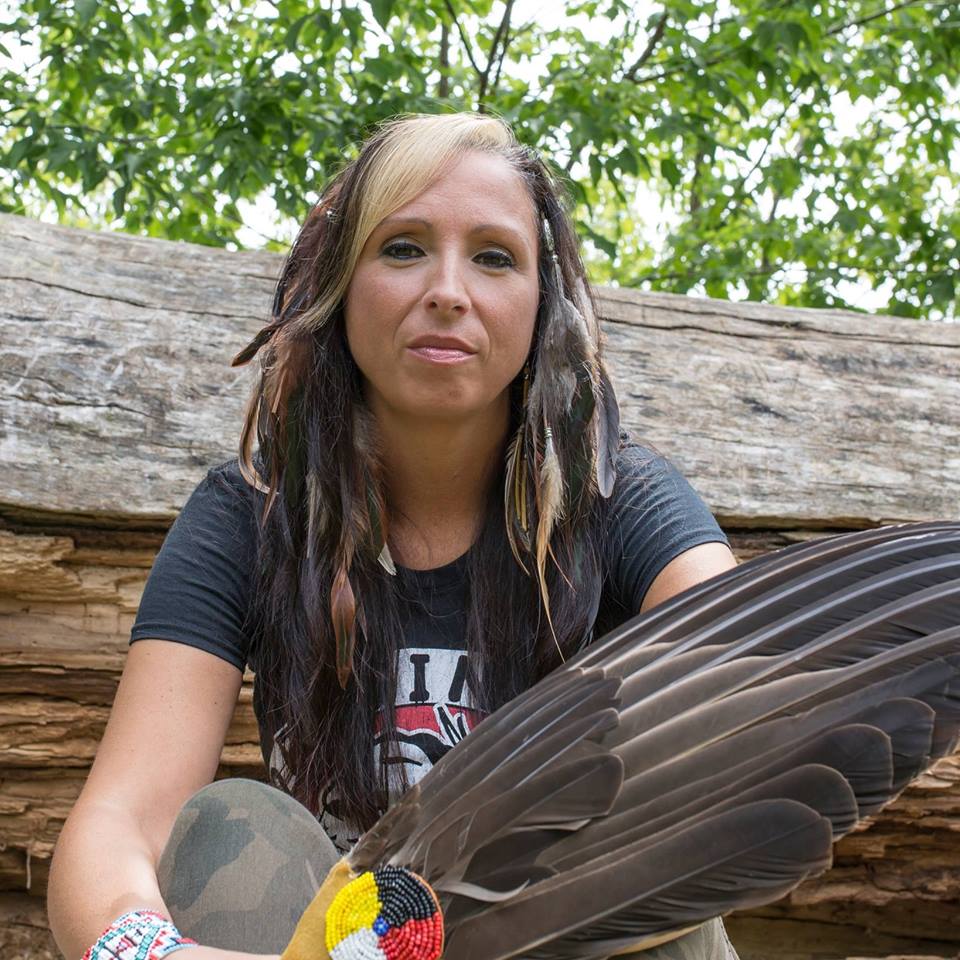
Keynote Speaker: Dr. Pamela Palmater
Dr. Pamela Palmater is a Mi’kmaw lawyer, professor, author, and social justice activist from Ugpi’ganjig (Eel River Bar First Nation). She has 4 university degrees, including a doctorate in law from Dalhousie University specializing in Indigenous law. She currently holds the position of full Professor and Chair in Indigenous Governance at Toronto Metropolitan University. Pam was one of the spokespeople and public educators for the Idle No More movement and advocates alongside other movements focusing on social justice and human rights. She is frequently called as a legal expert before parliamentary, senate and United Nations committees dealing with laws and policies impacting Indigenous peoples and is considered one of Canada’s Top 25 Influential Movers and Shakers by the Financial Post.
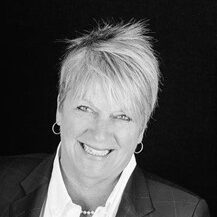
Maureen Adamson
Maureen Adamson is the interim president and CEO of Colleges Ontario. Adamson has more than 25 years of leadership experience in the postsecondary, health care, government and non-profit sectors. She previously served as Ontario’s deputy minister of tourism, culture and sport and deputy minister of the status of women. Her previous roles include president and CEO of the Michener Institute for Applied Health Sciences, CEO of Cystic Fibrosis Canada and vice-president of corporate services at Mohawk College. Adamson holds a diploma in business administration from Fleming College, a bachelor of business administration from Lakehead University and an MBA from the University of Toronto’s Rotman School of Management. She has completed the director’s education program at Rotman and the Institute of Corporate Directors, earning certification as a director. She is also pursuing a PhD in higher education.
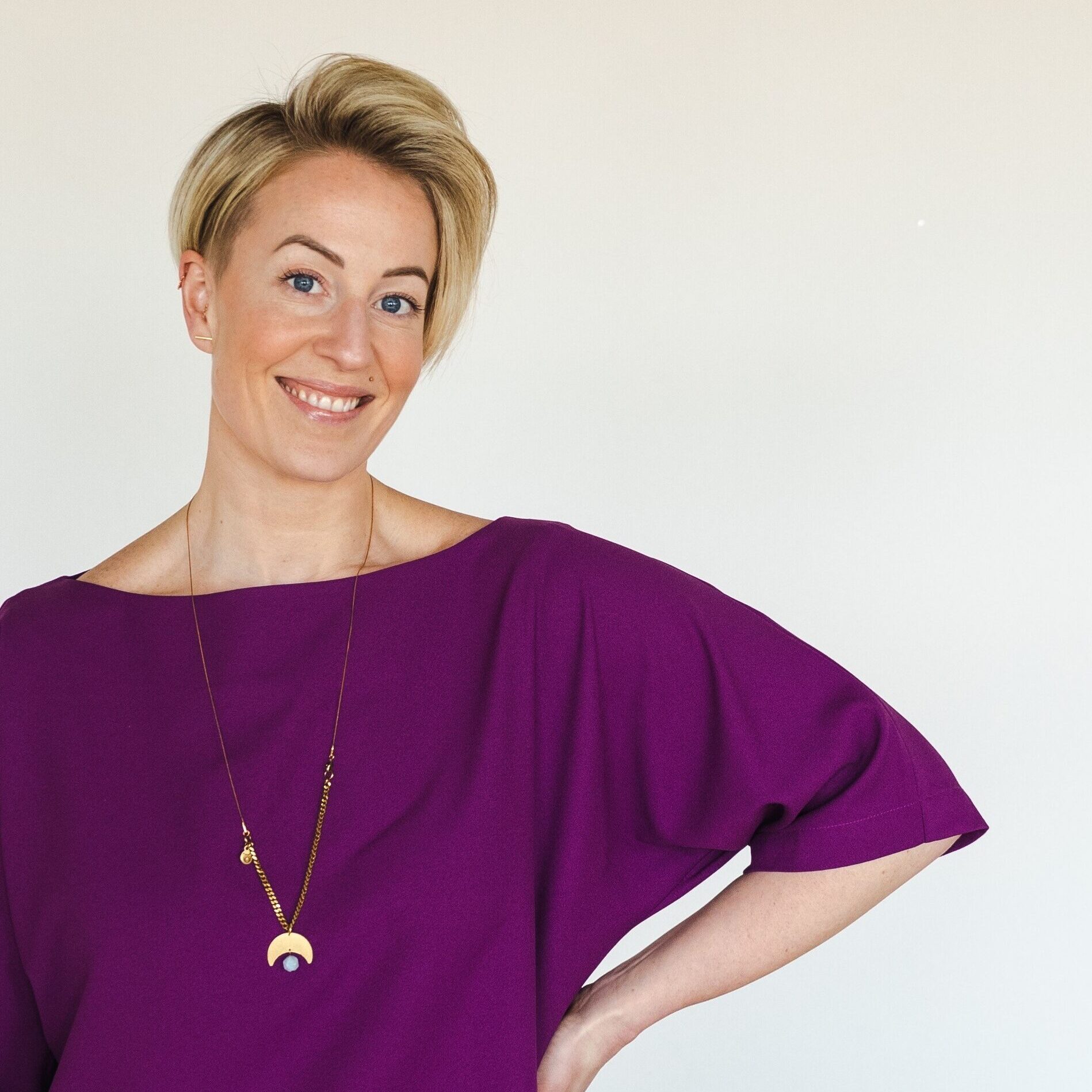
Jessica Antony
Jessica works with the HEQCO research team to offer guidance and expertise in the framing, writing and editorial development of research publications and other communications material. Jessica comes to HEQCO with ten years of experience as a managing editor for an academic book publisher and another fifteen years as an academic writing and editing instructor at the University of Winnipeg. Prior to joining the team at HEQCO, Jessica worked as an independent editor, publishing consultant and communication skills trainer, providing editorial, writing and workshop facilitation services to publishers, authors and organizations. She has a BA from the University of Winnipeg and an MA from Concordia University. Jessica is the lead editor and a contributor for the two most recent editions of Power and Resistance: Critical Thinking About Canadian Social Issues (Fernwood Publishing, 2022) and has published several articles with CBC Arts.
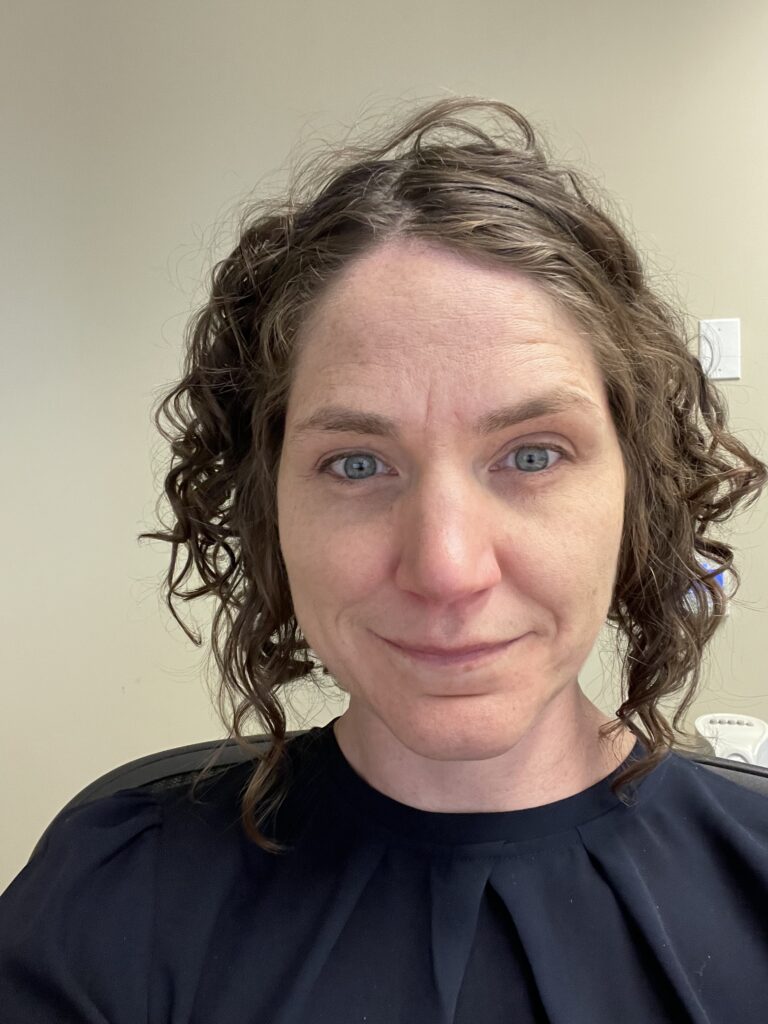
Erin Aspenleider
Dr. Erin Aspenlieder is the director of the office of teaching and learning at the University of Guelph. In this role she leads efforts to take responsible action on AI in teaching and learning. Prior to joining U of G, Erin was the special advisor to the provost on generative artificial intelligence at McMaster University. In this role Erin coordinated the institutional response to generative AI across teaching and learning, research, and administrative operations, including the development and implementation of guidelines across these domains and associated resources and supports. She served as a co-investigator on a multi-institutional study with Ithaka S+R on opportunities to make AI ‘generative’ for higher education, and a lead author for OCGS’s “Artificial Intelligence: Considerations for Graduate Research.” She co-developed and taught a new course “Critical AI Literacies” at McMaster and continues to present across Canada on generative AI and its possibilities and challenges. She holds a PhD in English and cultural studies and continues to read just for fun with reviews at literaryvice.ca
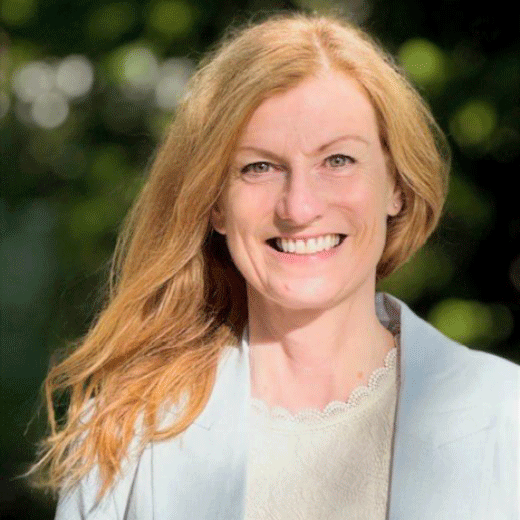
Michelle Baulch
Michelle Baulch is the director of student support and mental health initiatives at Carleton University, where she leads the care and support office and oversees the implementation of mental health strategies and initiatives across campus. A registered psychotherapist with over 20 years of experience in postsecondary mental health, Michelle has expertise in direct care, team management and strategic leadership. She is recognized for leading collaborations that expand resources, reduce barriers to support, and strengthen campus communities. Michelle has advanced the development of innovative programs and resources, including the Carleton therapy dog program, to increase help-seeking behaviours and improve access to care. Dedicated to enhancing student well being through proactive and compassionate approaches, she is passionate about equipping students, staff and faculty with the tools to navigate mental health challenges. Her vision emphasizes prevention, early intervention and inclusion to foster a healthy university community.
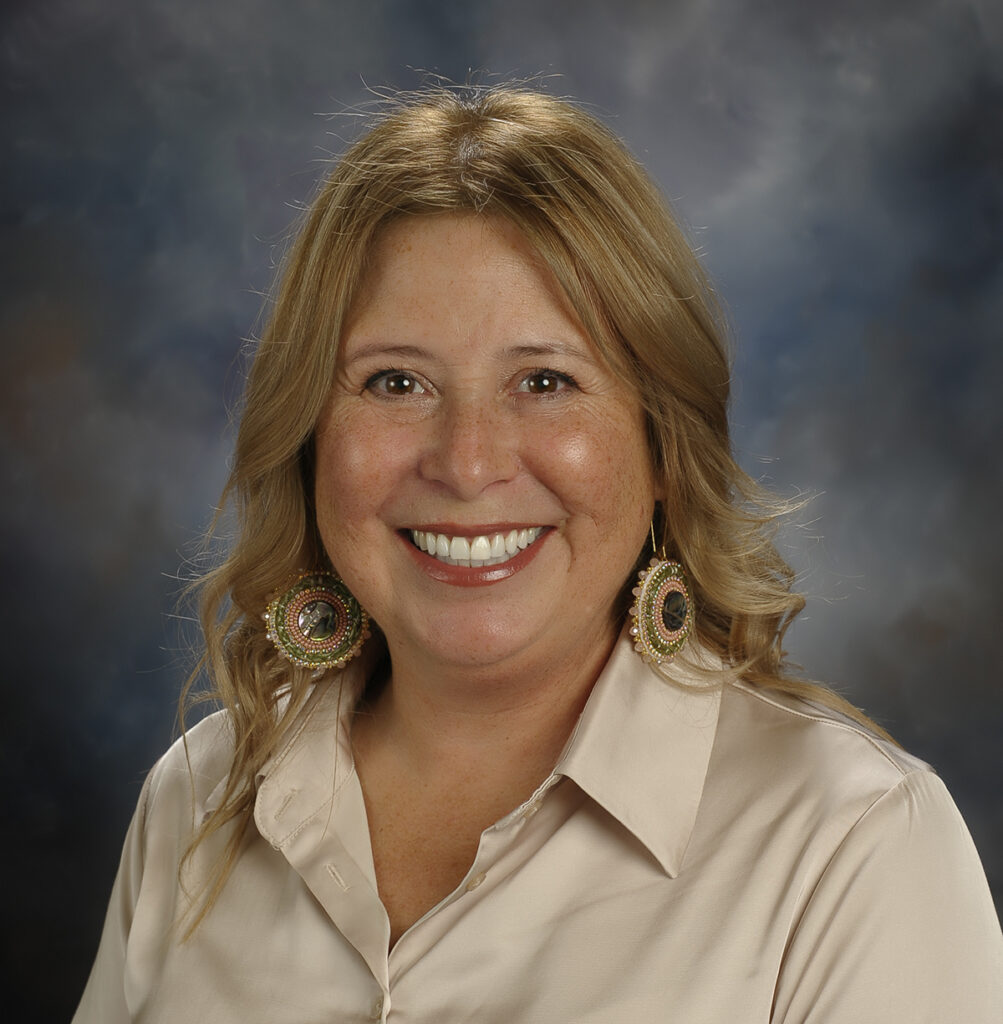
Denise Baxter
Denise Baxter has served as vice-provost of Indigenous initiatives at Lakehead University since 2017. She also teaches in the Department of Indigenous Learning and Department of Continuing Education. Denise is completing her PhD in equity and Indigenous education at York University. As an established education leader, Denise has worked in multiple contexts including public school boards, the Ministry of Education, Lakehead University, and First Nations private schools for the past 32 years. Within each of these contexts, she has built capacity and partnerships with multiple community stakeholders. Her work with the community has involved education conferences, workshop presentations, and traditional pedagogy. She currently serves on three services boards in Thunder Bay, as Trustee for Keewatin Patricia DSB and two national advisory committees. A Marten Falls First Nation member, she maintains that preserving and practicing cultural traditions and ceremony keeps her connected to the community, Indigenous cultures, traditions and protocols. She works to establish networks, strengthen relationships with Indigenous communities and governments, and build capacity between Indigenous, public, and private partners which have supported multiple initiatives that advance educational outcomes for Indigenous students.
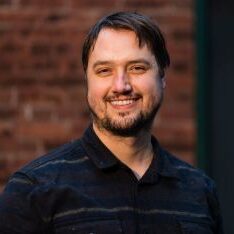
Andrew Bieler
As director of partnerships & experiential learning for the Business + Higher Education Roundtable (BHER), Andrew Bieler manages all aspects of research project development and delivery. Andrew joins from the Conference Board of Canada, where he led national consultations on work integrated learning and managed a research portfolio on experiential learning. He previously held senior research roles at Ryerson University (now known as Toronto Metropolitan University or TMU) and the Sustainability and Education Policy Network. Andrew holds a PhD from the joint program in communication and culture at York University and Ryerson University (now known as TMU) and completed a postdoctoral fellowship at the University of Saskatchewan.
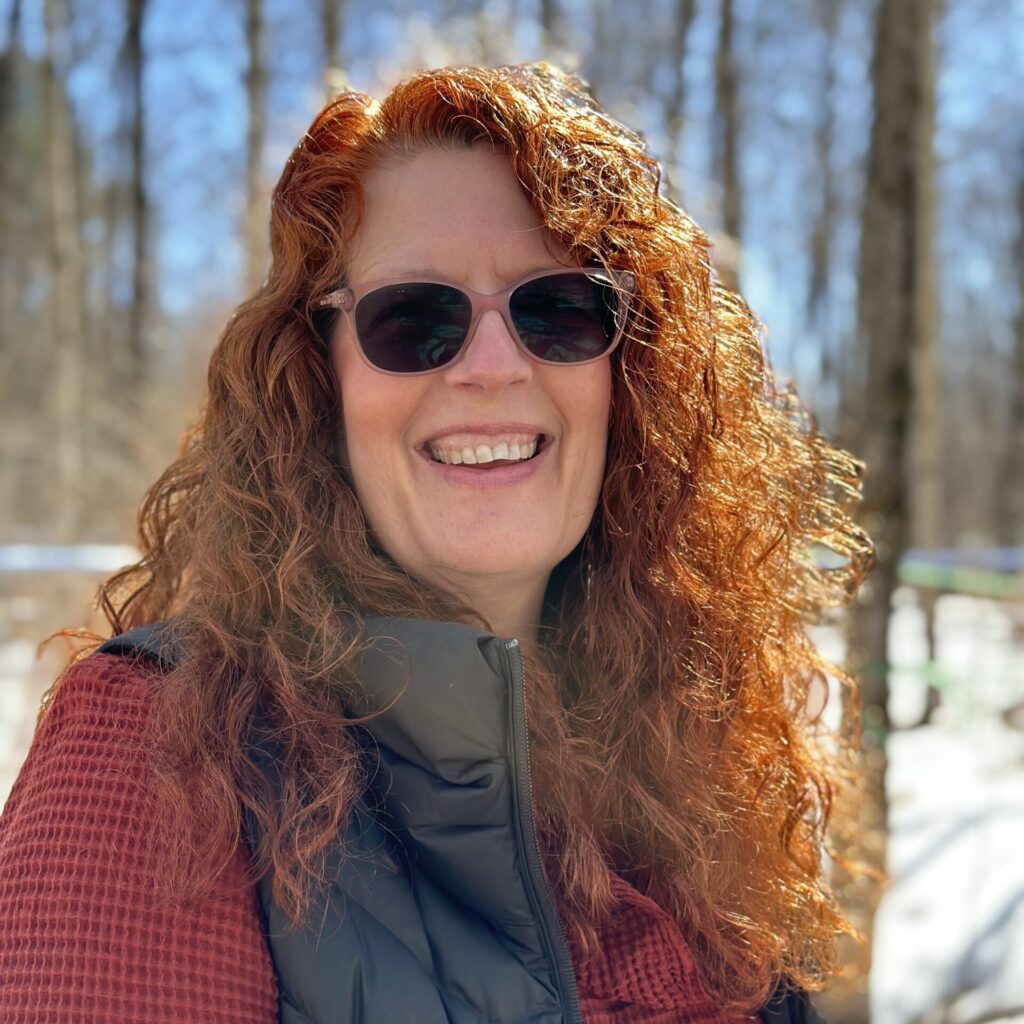
Suzanne Brant
Suzanne Brant is president and CEO of First Nations Technical Institute (FNTI), where she provides leadership and innovation in Indigenous postsecondary education. A Bear Clan member of the Mohawks of the Bay of Quinte, she lives on Tyendinaga Mohawk Territory. With more than 30 years of experience in education, health and Indigenous knowledge systems, Suzanne is dedicated to advancing culturally grounded approaches to learning. She holds a master’s degree in environmental studies from York University and is a 2019 recipient of the Bryden Alumni “Tentanda Via” award for bold and impactful leadership. Guided by her Mohawk name Katsi’tsiarihshion — “to take a flower apart” — she is also an artist, author, gardener, and proud mother of four and grandmother of five.
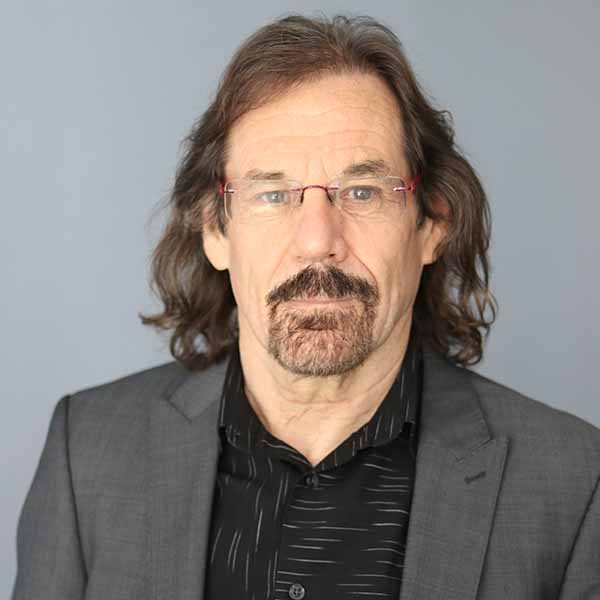
James Brown
James Brown has a PhD in English and has taught a wide variety of courses at York University ranging from literature through humanities/history of ideas to applied ethics. He has also held university administrative positions such as assistant director of the Centre for Academic Writing, associate director of the Centre for the Support of Teaching, assistant secretary of the university and senior executive officer for finance and administration. After 8 years at the University of New Brunswick in an administrative role, he returned to Toronto in 2013 where he was delighted to take up the position of CEO and director for the Postsecondary Education Quality Assessment Board (PEQAB).
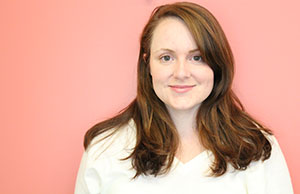
Sarah Brumwell
Sarah Brumwell is a senior researcher at HEQCO, where she has contributed to a wide variety of mixed methods research and evaluation projects since 2014. She is passionate about using administrative and labour market data to tell stories and solve problems in the postsecondary policy space. Prior to joining HEQCO, she worked at Seneca College’s Centre for Academic Excellence. She has a master’s degree in theory and criticism from Western University and a combined honours bachelor’s degree in humanities and philosophy from Carleton University.
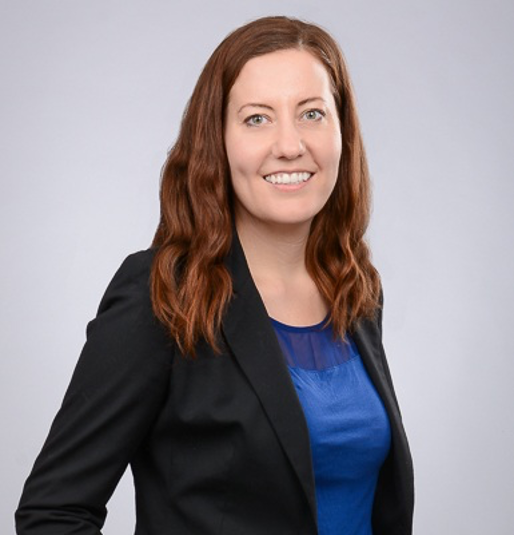
Elizabeth Buckner
Elizabeth Buckner is an associate professor of higher education at the Ontario Institute for Studies in Education, where she holds the Tier 2 Canada Research Chair in higher education for sustainable global development. Her research examines how global shifts and trends such as privatization, internationalization and sustainability affect higher education policies, institutional practices and students’ lives. She has authored dozens of academic articles and her books include: Degrees of Dignity: Arab Higher Education in the Global Era (University of Toronto Press) and International Students from Asia in Canadian Universities (co-edited with Jean Michel Montsion and Ann Kim) She holds a PhD from Stanford University.
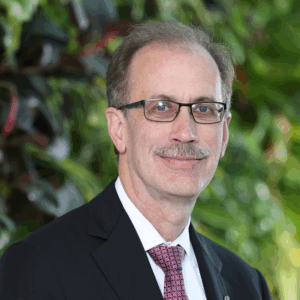
Malcolm Butler
Prior to joining HEQCO, Malcolm served as vice-president, academic and research at Saint Mary’s University, dean of science at Carleton University, and dean of science at Saint Mary’s University. Throughout his career, he has been committed to student success and how that needs to be enabled and supported. He has been a member of the Maritime Higher Education Commission and chaired its Quality Assurance Committee; served on the Ontario Universities Council on Quality Assurance; and chaired the Board of the Council on Admission and Transfer for Nova Scotia. Malcolm holds a bachelor of science in applied math and theoretical physics from McMaster University, and a PhD in theoretical nuclear physics from the California Institute of Technology.

Ken Chatoor
Ken Chatoor works to develop and implement LMIC’s vision for the collection and dissemination of research to support the data needs of Canada’s evolving labour market. Ken joined LMIC after working in education, labour market and equity research to support evidence-based policymaking. He has published research reports and government evaluations on mental health, the impact of funding structures on government service provision, work-integrated learning, and labour market transitions for new graduates. Prior to entering the world of policy and government, he worked in biomedical engineering, researching spine regeneration at Mount Sinai Hospital. He then studied at McGill University, where he researched therapies for brain cancer at Montreal General Hospital.

Rachel Courts
Rachel Courts is a senior researcher at the Higher Education Quality Council of Ontario (HEQCO), where she conducts research related to access, quality and system design in postsecondary education. Prior to joining HEQCO, Rachel worked as a research assistant and explored education issues related to student experience and teaching and learning. She holds an MA in educational leadership and policy from the Ontario Institute for Studies in Education at the University of Toronto, as well as an honours BA in political science and French language and literature from the University of Toronto.
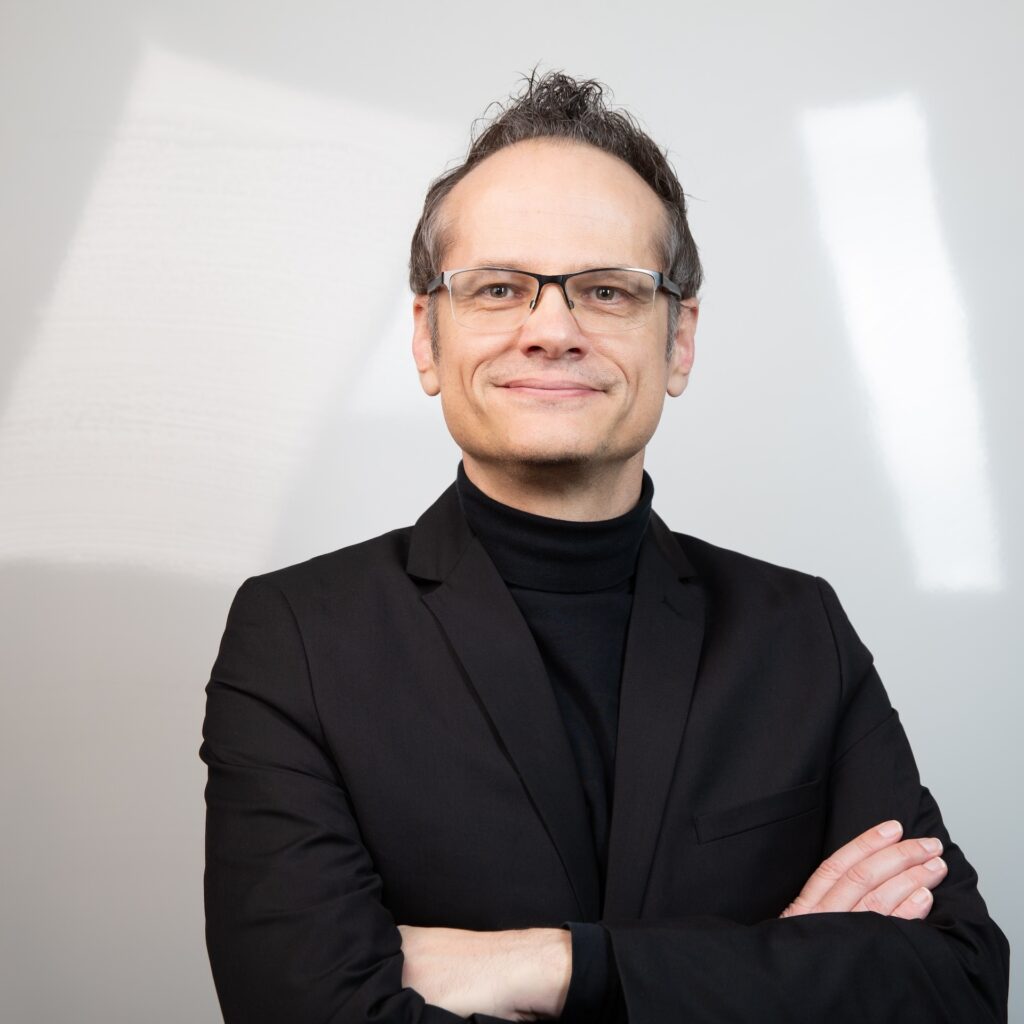
Mark Daley
Mark Daley is the chief AI officer at Western University and a professor in the Department of Computer Science with cross-appointments in five other departments, The Rotman Institute of Philosophy and The Western Institute for Neuroscience. He is also a faculty affiliate of Toronto’s Vector Institute for Artificial Intelligence. Mark was named in the Maclean’s “Power List 2024” of the top 100 Canadians shaping the country and in Constellation Research’s AI150, a list of top 150 global executives leading AI transformation efforts. In October 2024, Mark was appointed the Natural Sciences and Engineering Research Council of Canada (NSERC) Scholar in Residence in Artificial Intelligence. Mark has previously served as the vice-president (research) at the Canadian Institute for Advanced Research (CIFAR), and chief digital information officer, special advisor to the president, and associate vice-president (research) at Western.

Bindia Darshan
Bindia Darshan is the manager, wellness education and programs, at Humber Polytechnic. Bindia oversees upstream initiatives such as peer support, educational interventions and building capacity across the institution to foster early intervention, health literacy and cultivate an inclusive campus culture. Bindia is also a PhD candidate in the health quality program at Queen’s University with a research focus on student experiences with Stepped Care 2.0, a mental health service delivery model.
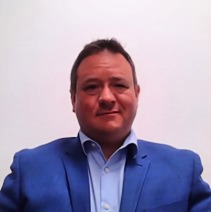
Jason Dennison
Jason Dennison is a senior workforce development professional with extensive experience researching and understanding the labour market situation in communities across Ontario. Currently, Jason serves as the director of business intelligence and chief workforce and labour market advisor at Fleming College. He advises the college on emerging career opportunities and labour market trends to support programming decisions. Jason holds a bachelor of science in human kinetics from the University of Ottawa and an MBA from the National Cheng Kung University in Taiwan where he spent 10 years as an expatriate and habitual traveler. Jason lives in Buckhorn with his wife and daughter and is an active participant and supporter of local businesses.
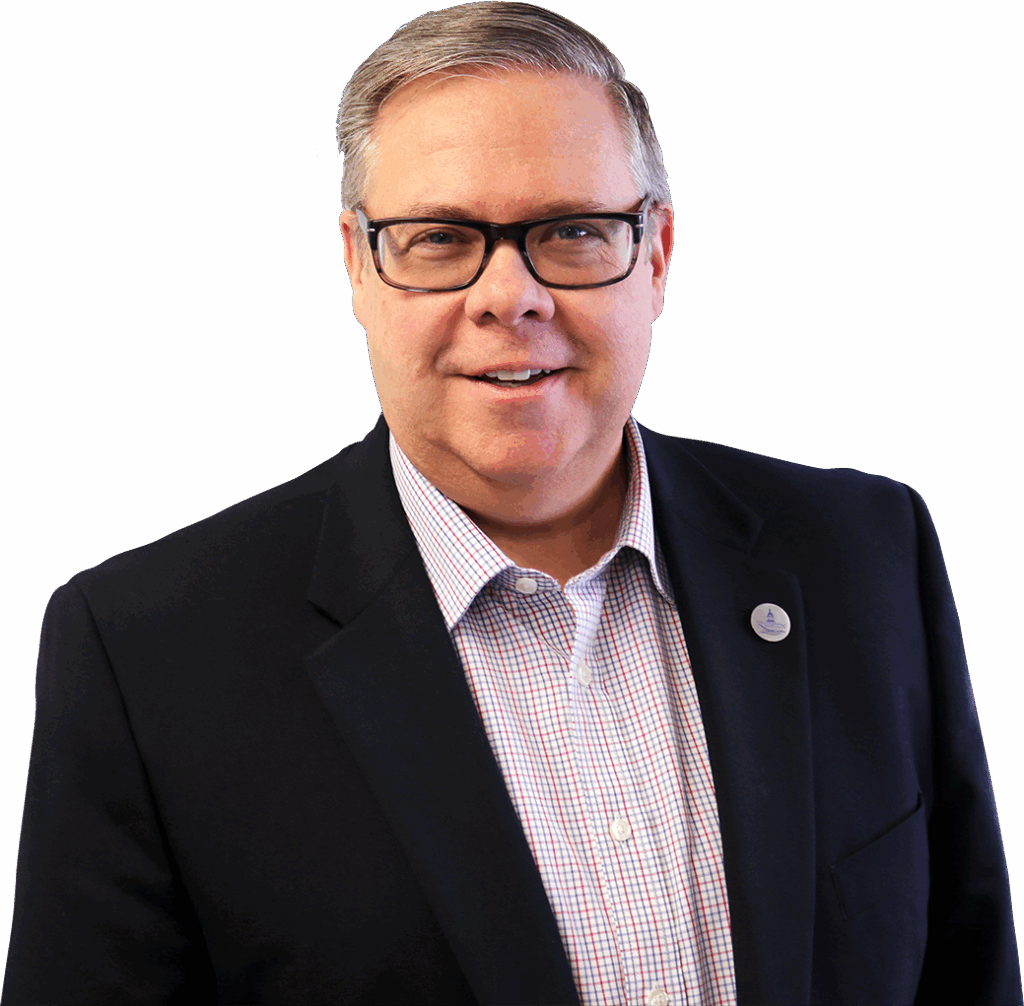
Craig Desjardins
Craig Desjardins is the director of strategy, innovation & partnerships for the City of Kingston, where he leads the enterprise-wide strategy and innovation agenda and builds cross-sector partnerships in the community to advance economic growth. His portfolio spans corporate strategy, community workforce development, oversight of the Kingston Airport, rural economic development and revenue generation, with a focus on turning ideas into measurable public value. Previously, Craig held leadership roles in community economic development and finance, while also serving as an elected municipal official for more than a decade. He has taught entrepreneurship in business programs at both Queen’s University and the Royal Military College of Canada. He holds an MBA from Queen’s University and a BA in economics from Western University.
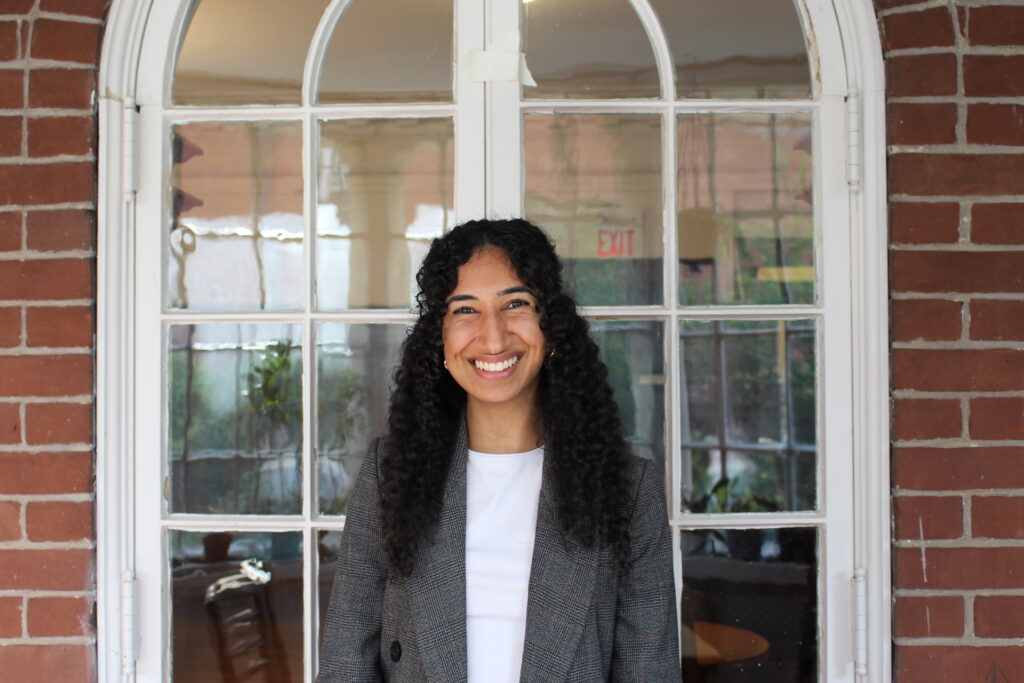
Malika Dhanani
Malika Dhanani is a second-generation settler living in what is traditionally known as Tkaronto and is the executive director of the Ontario Undergraduate Student Alliance (OUSA). She works alongside student leaders to advocate for improvements to the affordability, accessibility, accountability, quality and equity of university education in the province. As an advocate, Malika values uplifting voices of affected populations and harnessing the power of their intersectional experiences to strengthen policy advocacy. The shared values between her personal and professional journeys have led her to engage with policy advocacy for childcare in Ontario, youth homelessness and housing in Canada, and national home care. Malika holds a bachelor of applied science from the University of Guelph and a master of social work from the University of Toronto.

Michael Dubois
Michael Dubois is a senior research associate at the Social Research and Demonstration Corporation (SRDC). He has over a decade of experience conducting education, skills and labour market research using complex longitudinal administrative data. His current research activities focus on apprenticeship persistence and completion; international students’ migration and labour market outcomes; the impact of education interventions on criminal justice outcomes; and estimating the impact of tri-agency awards on earnings using quasi-experimental approaches.
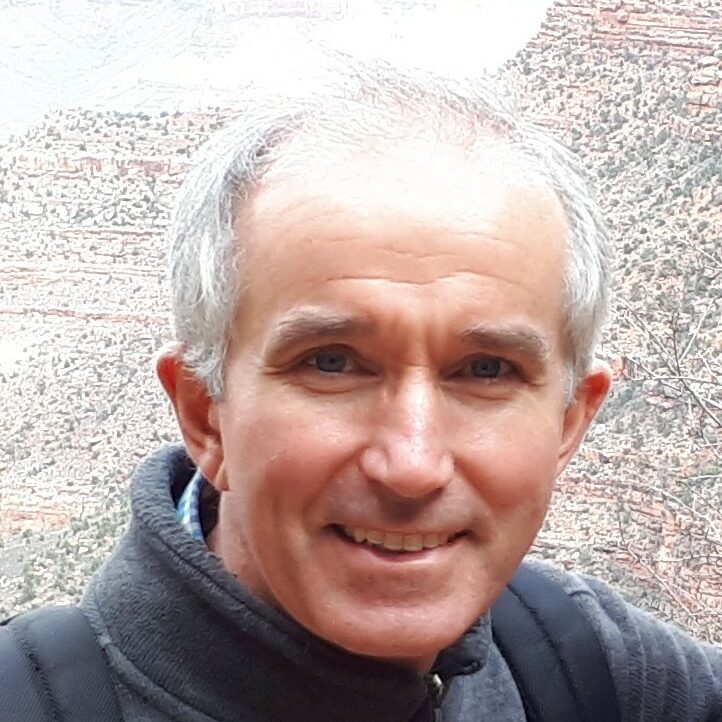
Dr. Reuben Ford
Dr. Reuben Ford is a research director at the non-profit research organization, Social Research and Demonstration Corporation (SRDC) in its Vancouver office. SRDC’s mission is to help policy makers and practitioners identify policies and programs that improve the well being of all Canadians — with a special concern for the effects on the disadvantaged — and to raise the standards of evidence used. Since 2003, Dr Ford has directed SRDC’s team investigating and testing new approaches to increase access to postsecondary education across Canada as well as analyses of employment and social assistance programming. He holds a PhD in geography from University College London and is a credentialed evaluator, as recognized by the Canadian Evaluation Society.
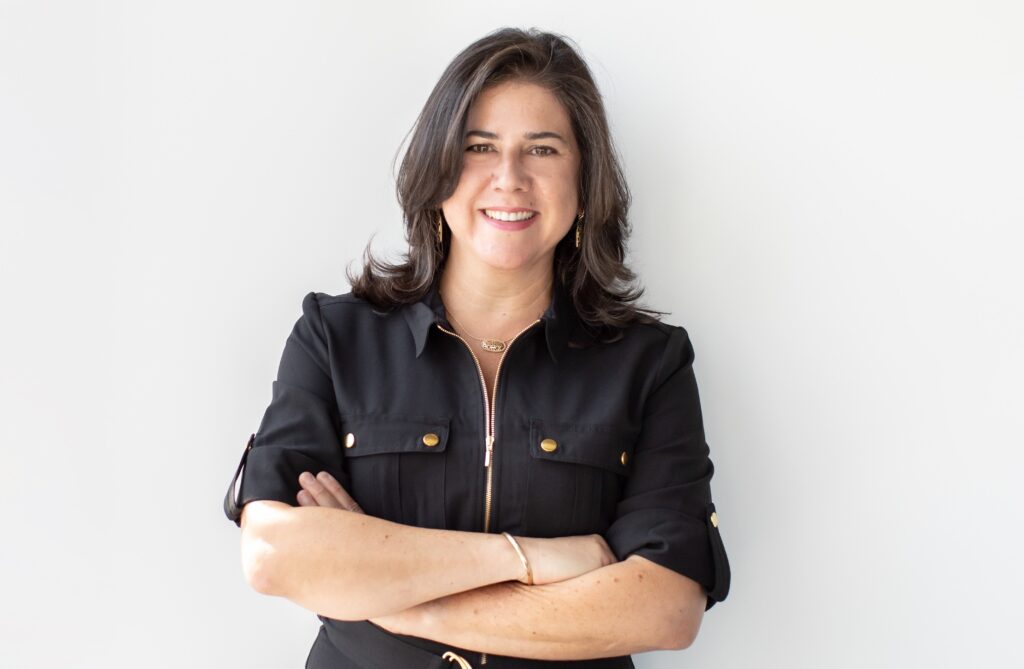
Dr. Adrienne Galway
Dr. Adrienne Galway is the president and CEO of the Ontario Council on Articulation and Transfer (ONCAT) and a distinguished senior leader in postsecondary education. Her career includes work in program development and quality assurance; public relations and communications; federal and provincial government relations; and strategic partnerships. Prior to joining ONCAT, Dr. Galway spent over 10 years serving in several senior positions at George Brown College — most recently as the associate vice-president of government and external relations. Before joining George Brown, she served as the senior advisor to the minister of training, colleges, and universities and as the education policy advisor to the leader of the official opposition of the Government of Ontario. She has taught political science, Canadian studies and education policy at the University of Toronto and the State University of New York at Buffalo and has extensive experience working with and serving on governance boards in the university, college and not-for-profit sectors. Dr. Galway holds a PhD in higher education from the University of Toronto.
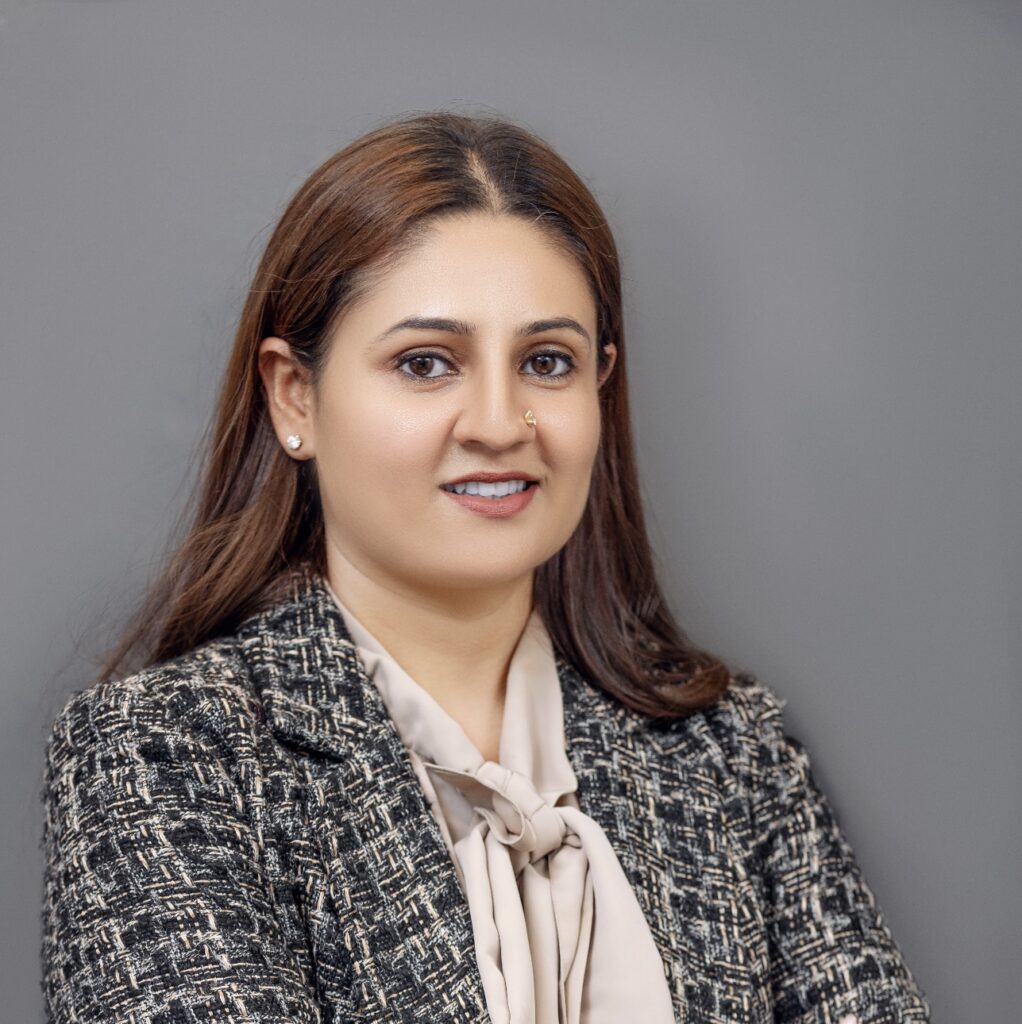
Seerat Gill
Seerat Kaur Gill worked as a postdoctoral fellow in higher education at the Department of Leadership, Adult and Higher Education, OISE, University of Toronto (2023–2025). Her research examined the privatization of higher education, with emphasis on international student policies, the regulation of private career colleges, and issues of access and equity in postsecondary education. Alongside her fellowship, she taught part time at The Business School at Centennial College, offering courses in organizational behavior and strategic management to diploma and post-diploma students. Committed to bridging research and practice, she has focused on advancing policies and practices that support diverse student populations. She is also the author of One Amazing Sikh at a Time, an illustrated children’s book celebrating Sikh changemakers making meaningful contributions across different fields.
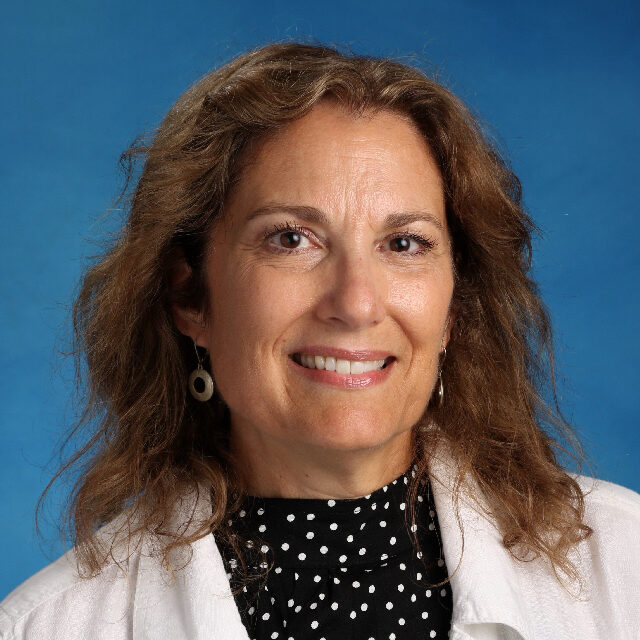
Alma Gordon
Alma Gordon is a dedicated educator with an honours degree from McMaster University and a bachelor of education from the University of Western Ontario. Alma has studied abroad, and lived and worked in many cities around the world including Paris, Florence and Toronto. She has worked in various educational capacities at the elementary and secondary levels, such as teacher, department head, guidance councillor and vice principal. For the past seven years she has been the principal of St. Patrick Adult and Continuing Education school. Alma is a member of the Aspiring Leaders Committee for the London District Catholic School Board as well as a host and mentor for Continuing Education School Board Administrators (CESBA) New Administrators provincewide. When not at school, she enjoys spending time with her family, travelling and exploring new recipes.
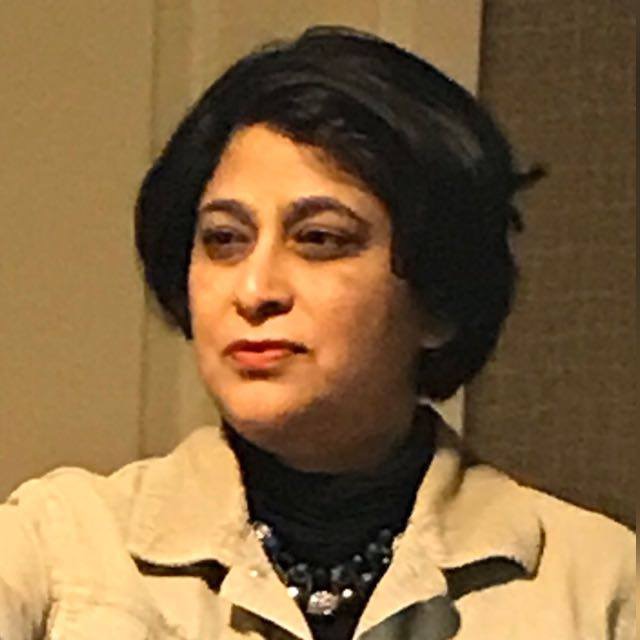
Rashmi Gupta
Rashmi Gupta is a strategic leader in institutional research and planning, recognized for driving data-informed decision making and advancing academic innovation. As director of institutional research and planning at both Conestoga College and Durham College, she has successfully led cross-functional teams to accelerate enrolment growth, expand program development, enhance student success and strengthen accountability reporting. Her achievements include designing strategic-priority-driven assessment frameworks, launching and overseeing centralized data portals and creating performance dashboards that directly shape institutional action plans. Rashmi’s leadership extends to managing large-scale survey initiatives, delivering provincial reporting and providing expert consultation to regional partners. Renowned for transforming complex data into clear, actionable insights, she champions a culture of data literacy and continuous improvement. Rashmi has served on provincial and institutional committees contributing to the future vision of Ontario’s postsecondary sector and informing financial and governance initiatives. Her work has influenced institutional strategy, elevated organizational outcomes and established her as a trusted advisor and thought leader in higher education planning.

Matthew Hack
Matthew Hack is the manager of institutional research and planning at Durham College and has been with the college since 2014. Matthew has extensive experience with benchmarking, labour markets retention modeling and survey reporting. As a part-time faculty member, Matthew has taught at several Ontario postsecondary institutions and has completed a number of funded research projects. In his spare time, Matthew volunteers with the Board of Governors for the Canadian Institutional Research and Planning Association and is chair of their professional development committee which hosts events on a range of topics including applied artificial intelligence, and hosts guest speakers from leading higher ed institutions and government organizations such as Statistics Canada and Employment and Social Development Canada (ESDC).
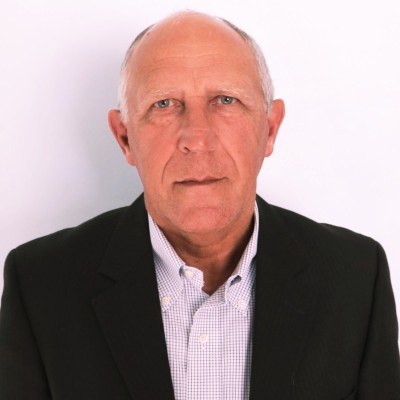
Christopher Imecs
Coordinator of engineering/architecture bridging program at Humber Polytechnic, Christopher Imecs brings a global perspective to the work he does. He’s certainly the right person in the right place, having faced many of the same challenges his students confront when they first arrive in Canada. Christopher understands very well their circumstances, frustrations and need for a personal connection with someone who cares, and he is passionate about helping newcomer professionals to achieve their full potential. Born in Romania and fluent in Romanian and Hungarian as well as in English, Christopher holds a bachelor’s degree of legal matters from Romania, a social service worker diploma from Seneca College and he is a graduate of the Toronto Sectors Skills Academy workforce development and leadership program.
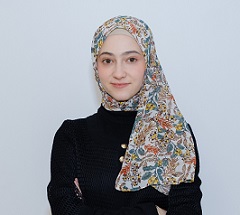
Miha Isik
Prior to joining the HEQCO, Miha developed her expertise in research methodologies, data analysis and project management through her roles at Forum Research and Hotspex. Her background as an international student and her involvement in curriculum development and student success tracking at community schools have deeply influenced her approach to education which emphasizes policy research, social issues and community engagement. She is passionate about educational equity, evidence-based policymaking and program evaluation. Miha holds a bachelor’s degree in psychology, and a research analyst postgraduate certificate from Humber College.
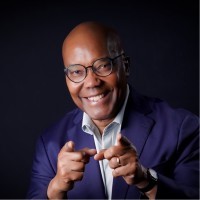
Maxim Jean-Louis
Helping people in Ontario, especially those in small, rural, northern and remote communities, access online education and training without having to leave their communities has been the focus of Maxim Jean-Louis’s work at Contact North I Contact Nord since 1996. Through its Innovation & Development Lab, Contact North | Contact Nord created and freely shares four AI apps for higher education: AI Tutor Pro, AI Teaching Assistant Pro, AI Pathfinder Pro, and AI Trades Explorer Pro. Maxim serves as chair of renewed computer technology and on the boards of Groupe Média TFO and Cambrian College. Maxim is a Commonwealth of Learning Fellow, an EDEN Digital Learning Europe (EDEN DLE) Fellow, a member of the Global Smart Education Network (GSENet), and recipient of the King Charles III Coronation Medal. He was a member of Ontario’s 2023 Blue Ribbon Panel on Postsecondary Sustainability.
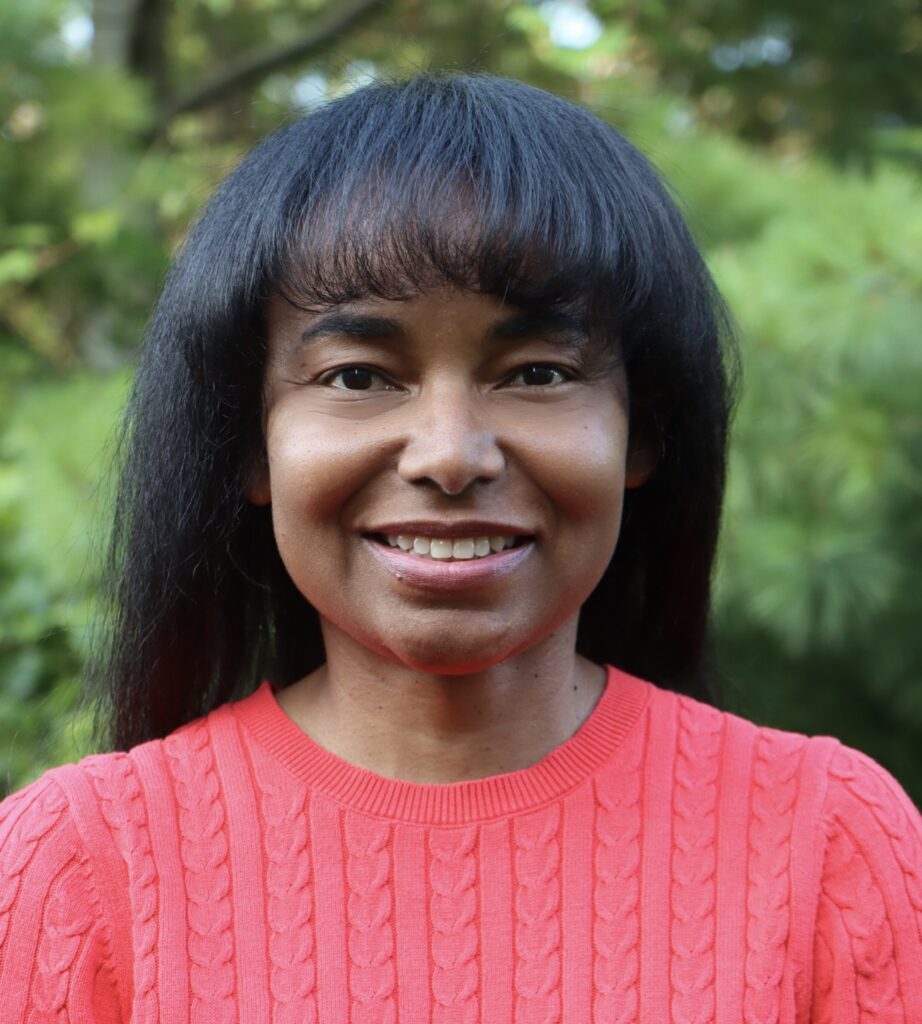
Marsha Josephs
Marsha Josephs is a strategist, natural collaborator and effective negotiator. Throughout her career, she has developed and driven domestic and international strategies which have resulted in unprecedented growth. Marsha has experience as a senior leader in the Ontario Public Service and non-profit organizations, with expertise in postsecondary education. For over 15 years, Marsha has dedicated her work to purpose-driven organizations and Indigenous communities. As a sought after thought-leader, Marsha is often requested to provide advice at national, provincial and international advisory committees. As a passionate advocate, Marsha speaks at conferences on issues affecting women, youth and entrepreneurs. She is passionate about creating an equitable, inclusive and diverse society and generating prosperity for all
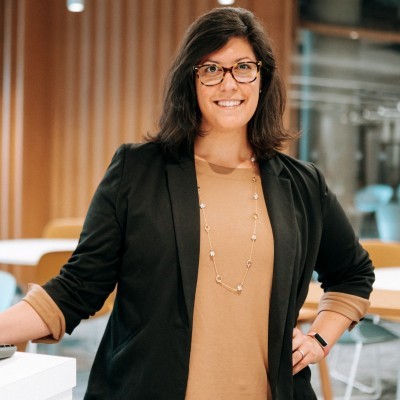
Minette Klazinga
Minette Klazinga is an experienced higher education professional with 20+ years of working in the sector. As program manager, part-time studies at Fanshawe College in London, Ontario, she leads the organization’s part-time studies portfolio and executes strategic initiatives to support mature learners, including part-time postsecondary programs, continuing education and microcredentials. With a passion for lifelong learning, Minette holds credentials from Fanshawe College’s business administration-marketing advanced diploma program, a bachelor of education (adult education) from Brock University, and a master of management innovation and entrepreneurship from Queen’s University. She is currently completing a doctor of education (higher education leadership) degree at Western University. Minette is a champion for creating innovative, flexible learning opportunities to serve diverse populations of learners and reducing barriers to postsecondary education.
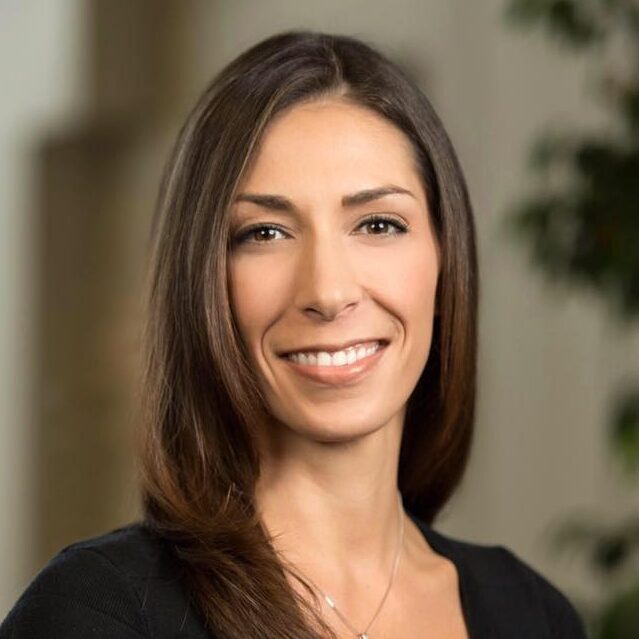
Onawa LaBelle
Dr. Onawa LaBelle is an associate professor of psychology at the University of Windsor, where she directs the positive psychology, recovery, and relationships lab. She also serves as co-director of the Center for Addiction Recovery Support (CARS), a $9.5 million SAMHSA-funded initiative advancing recovery services across the United States, where she oversees the evaluation team and leads research on peer workforce development, digital recovery, re-entry programs, recovery housing, recovery schools, collegiate recovery and recovery-ready workplaces. With over two decades of lived experience in addiction recovery, Dr. LaBelle became involved in collegiate recovery while completing her PhD at the University of Michigan. After moving to Canada, she founded Lancers Recover in 2020, Ontario’s first university-based recovery program, and has supported the growth of collegiate recovery programs nationwide. Dr. LaBelle’s research focuses on pathways to recovery and positive psychology constructs such as gratitude, mindfulness, emotion regulation and social connectedness, with an emphasis on holistic measures of well-being beyond abstinence-only definitions.
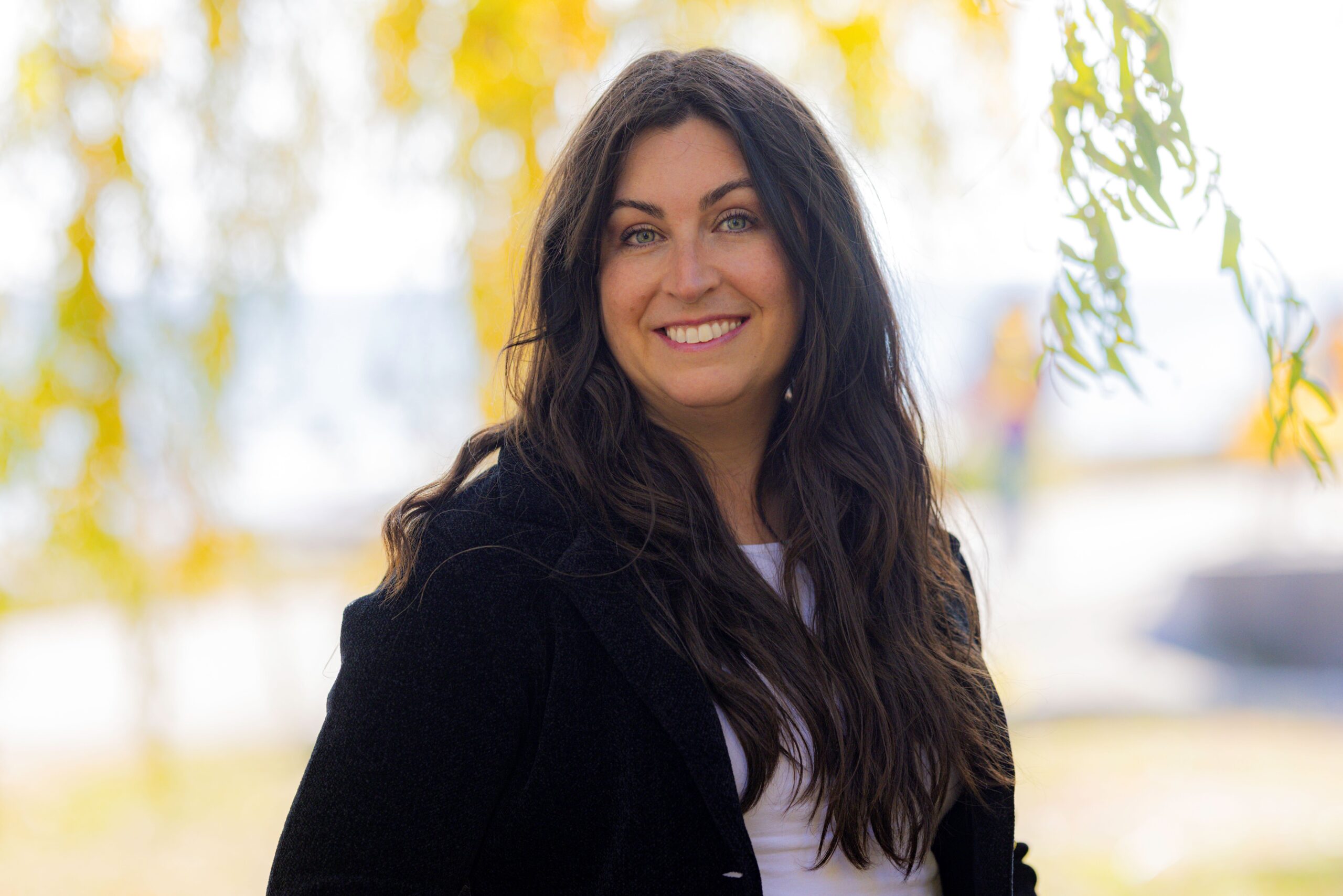
Sophie Lanthier
Sophie Lanthier is a senior researcher at the Higher Education Quality Council of Ontario (HEQCO) who has managed and overseen numerous research and educational projects throughout her career. Sophie joined HEQCO after completing her PhD in Psychology at the University of British Columbia, where she also served as an instructor. At HEQCO, she blends her research expertise and teaching experience by leading research projects on key issues and trends in Ontario’s higher education system.
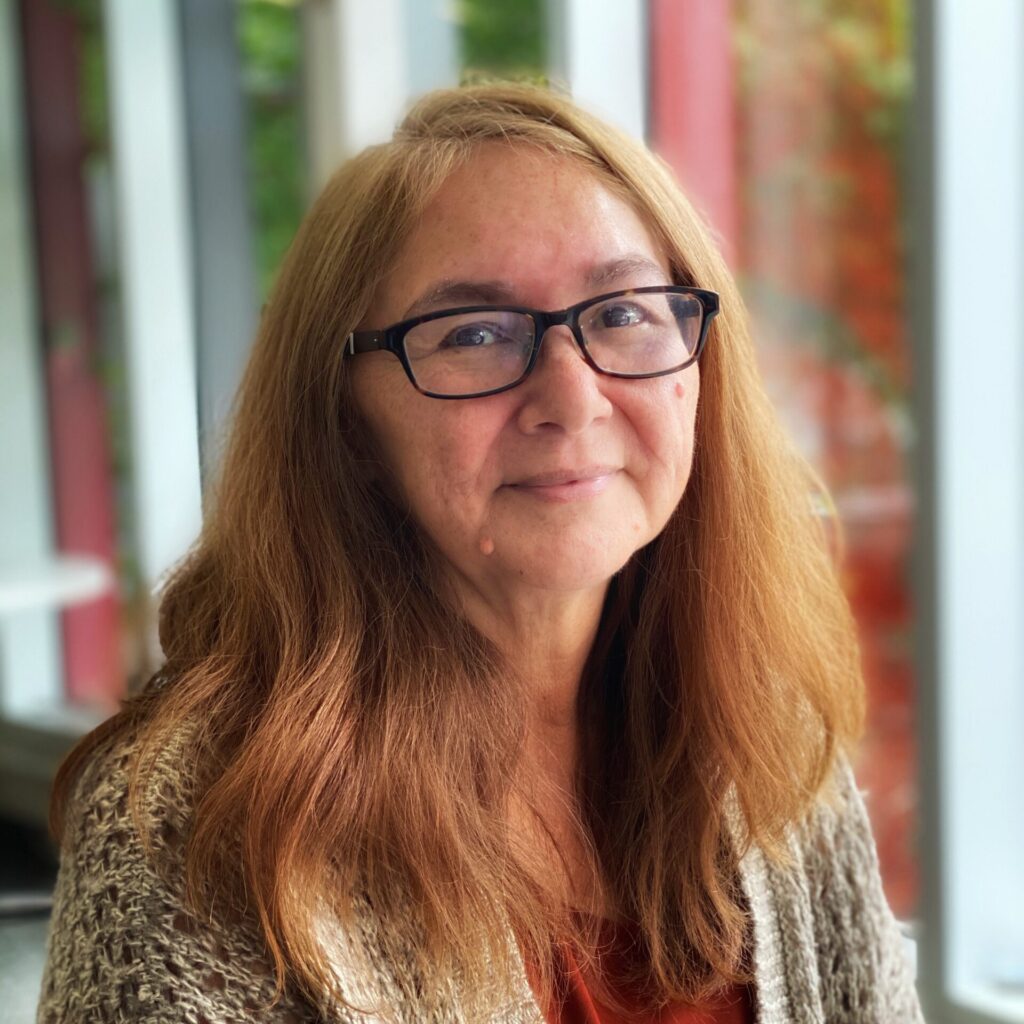
Mary Laur
Mary Laur is a member of the Mishkeegogamang Ojibway Nation and has dedicated over 18 years to advancing Indigenous education within the postsecondary sector. As the director of the Indigenous Sharing and Learning Centre (ISLC), Mary supports First Nation, Inuit and Métis learners by fostering student success through honouring and weaving Indigenous knowledge, languages and worldviews into programming. Mary works to create inclusive, safe and empowering learning environments that reflect and respect the diverse identities of First Nation, Inuit and Métis students. Their leadership at the ISLC is rooted in a passion for postsecondary learning as a tool for self-determination, healing and reconciliation. Through advocacy, collaboration and relationship-building, Mary continues to strengthen pathways for Indigenous student achievement and community connection.
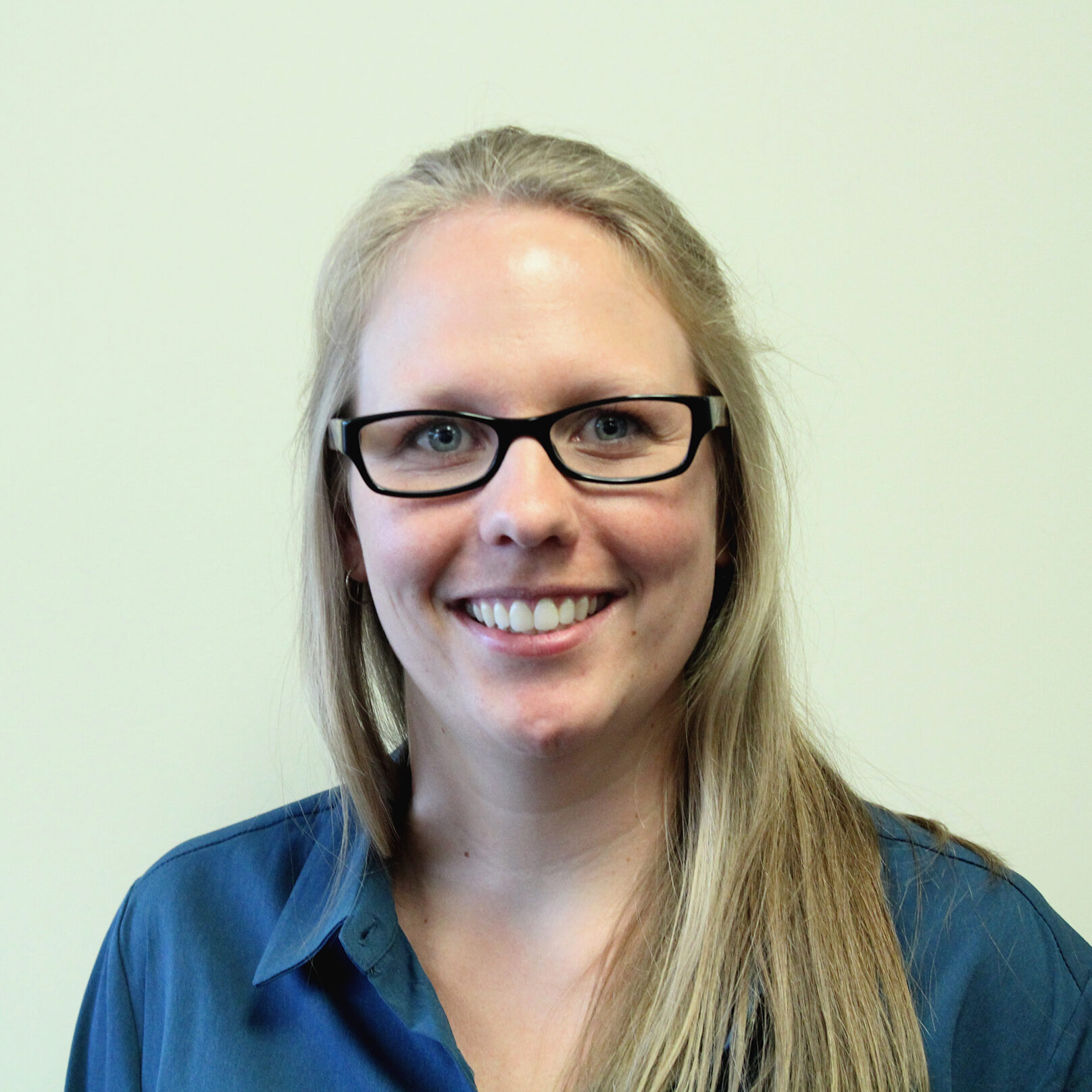
Alexandra MacFarlane
As a member of the HEQCO research team Alexandra MacFarlane manages internal and external projects emphasizing quality in the postsecondary education system. Her research focuses on AI, international education, learning outcomes, work-integrated learning and numeracy. Building on her experience teaching at the primary, secondary and college level, Alexandra is interested in evidence-based research that improves the student experience. Prior to working at HEQCO, Alexandra taught, developed courses and conducted research at two Ontario colleges. She holds a master of education and a bachelor of education from Queen’s University as well as an honours bachelor of science in biology and geography from Trent University.

Patrick Mainville
I am a management executive with 20+ years of experience in people management, project management, enrolment strategy, educational training and relationship building in both startups and postsecondary institutions. Currently, I serve as academic dean of the skilled trades, agri-food, and technology, arts & communication institutes at Collège La Cité in Ottawa, overseeing 50 postsecondary, apprenticeship and pre-apprenticeship programs. I excel at analyzing complex variables to accelerate business growth and create sustainable educational programs. With a strong track record in innovative marketing, achieving targets and fostering lasting partnerships, I bring proven leadership. As part of a Francophone minority, I advocate for equity and inclusion. My goal is to help organizations grow strategically while building diverse and resilient teams.
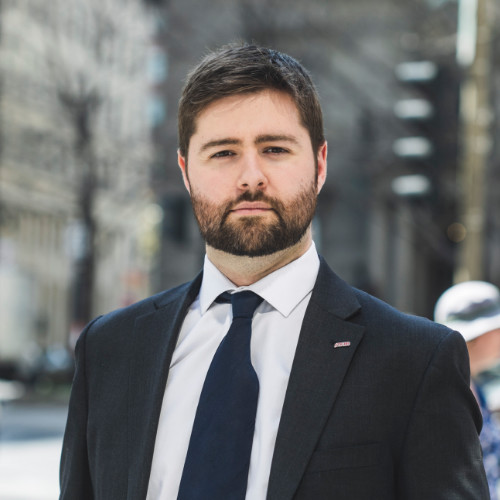
Ryan Mallough
Ryan Mallough is the vice-president, legislative affairs and communications with the Canadian Federation of Independent Business (CFIB). Ryan leads the federation’s public affairs campaigns on key small business issues, as well as national files like internal trade and red tape. Previously, he managed the Ontario team and led the provincial response to the COVID-19 pandemic as well as, taxation, education, municipal and fiscal policy files. Ryan joined CFIB in 2015 with the communications team before moving over to the Ontario advocacy team in 2016. In 2023 he began to oversee both departments before taking on a nationwide legislative role in 2025. Prior to joining the organization, Ryan worked at the University of Toronto as a communications officer as well as in the research department at Aboriginal Affairs and Northern Development Canada. Ryan holds a BSocSc in political science from the University of Ottawa and a MA in journalism from Western University.
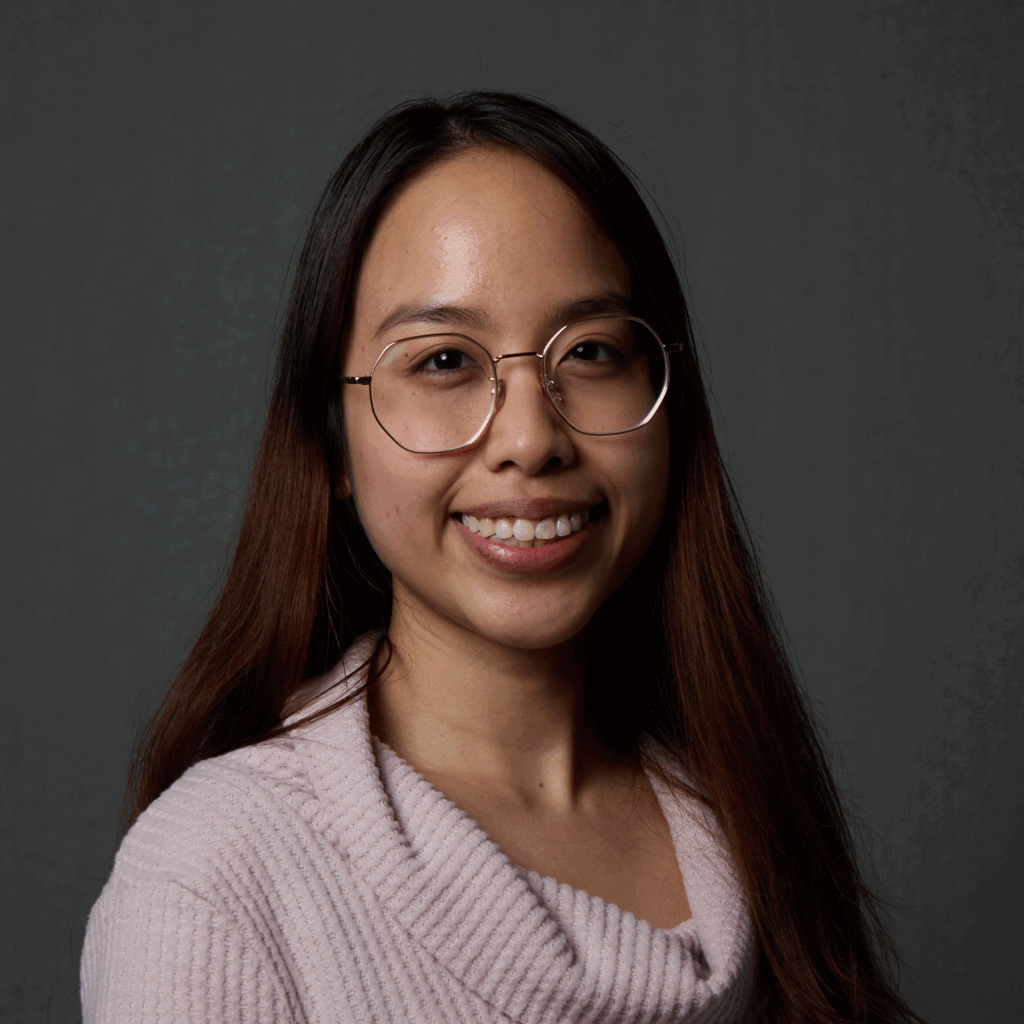
Angel Megumi Quiamco
Angel Megumi Quiamco is a fitness and health promotion student at Humber Polytechnic who also leads the peer wellness educator digital media team. In this role, she develops and delivers creative health promotion campaigns, facilitates Bringing in the Bystander training, and supports campus-wide initiatives to foster a safe and inclusive environment. Angel has actively contributed to major wellness events such as Take Back the Night and wellness service fairs, demonstrating her commitment to advocacy and community engagement. She also works as a physiotherapy assistant at Lacoste Rehab, applying her clinical knowledge to support patient recovery. With a BSc in physical therapy from Silliman University and a certification from the University of Alberta in physiotherapy practice in the Canadian Healthcare System, Angel integrates proactive rehabilitation, fitness and education to help individuals and communities thrive.

Donna Noah
Donna Noah is Lunaapeew (Lenape), bear clan from Munsee Delaware Nation and has been actively engaged with Western University’s Indigenous Student Center (ISC) since June 2018, where she has held various roles aimed at enhancing a sense of belonging, community, transition, student success and retention for Indigenous students. Her responsibilities also include delivering culturally relevant programming and peer mentorship through the Indigenous Circles of Support and Leadership Program (ICSLP). Currently, she serves as the Indigenous financial aid coordinator within the Indigenous Student Center and the Office of Indigenous Initiatives at Western. Having experienced the invaluable support of the Indigenous Student Centre (ISC) during her studies at Western, she is dedicated to welcoming both current and incoming Indigenous students to the expanding Indigenous community at Western University. Her goal is to serve as a supportive resource throughout their journey and transition at Western and in postsecondary education.
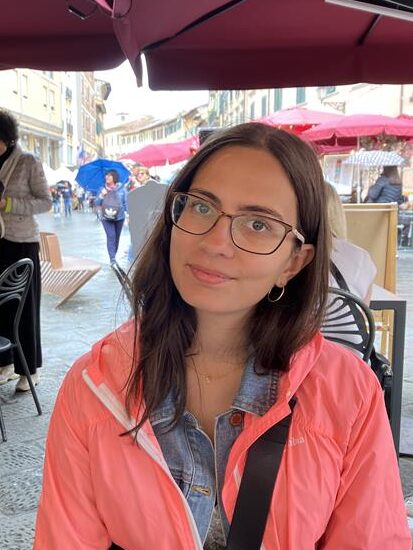
Selena Norman
Selena Norman (she/her) is the campus community lead at the Centre for Innovation in Campus Mental Health (CICMH). Her work focuses on fostering campus–community partnerships between Ontario postsecondary institutions and community mental health organizations to enhance capacity in supporting student mental health and wellbeing. Her educational background includes a master of public health (MPH) from the University of Waterloo, a behavioural science technician diploma from George Brown College, and a bachelor of arts (BA) in psychology from the University of Ottawa.
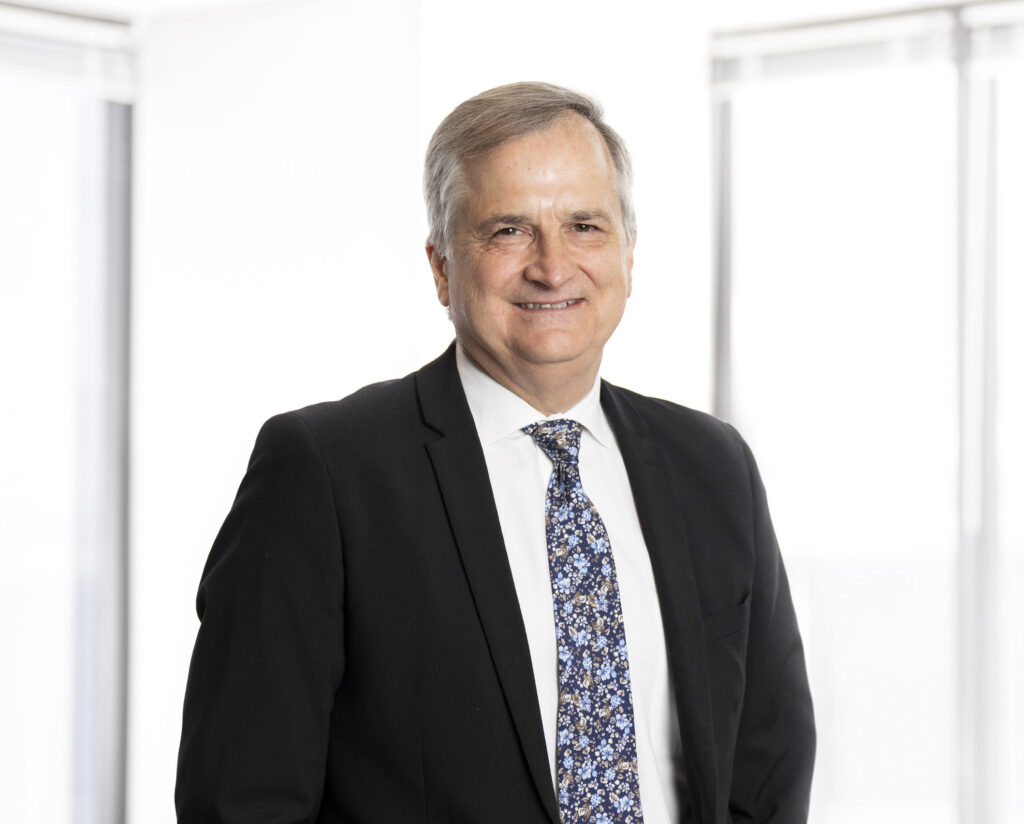
Steve Orsini
Steve Orsini is president and CEO of the Council of Ontario Universities. Prior to this role, Steve held several leadership positions in the Ontario public service, including secretary of the cabinet; deputy minister of finance and secretary of the treasury board; and deputy minister of revenue. Steve also held several leadership positions at the Ontario Hospital Association, including vice-president of policy and public affairs. Steve is a member of the Fiscal Federalism Policy Network, a board member of the Ontario Brain Institute and Canadian Ditchley Foundation, and a senior fellow at the C.D. Howe Institute. Steve holds a bachelor of applied arts in urban and regional planning and a master’s in environmental studies.
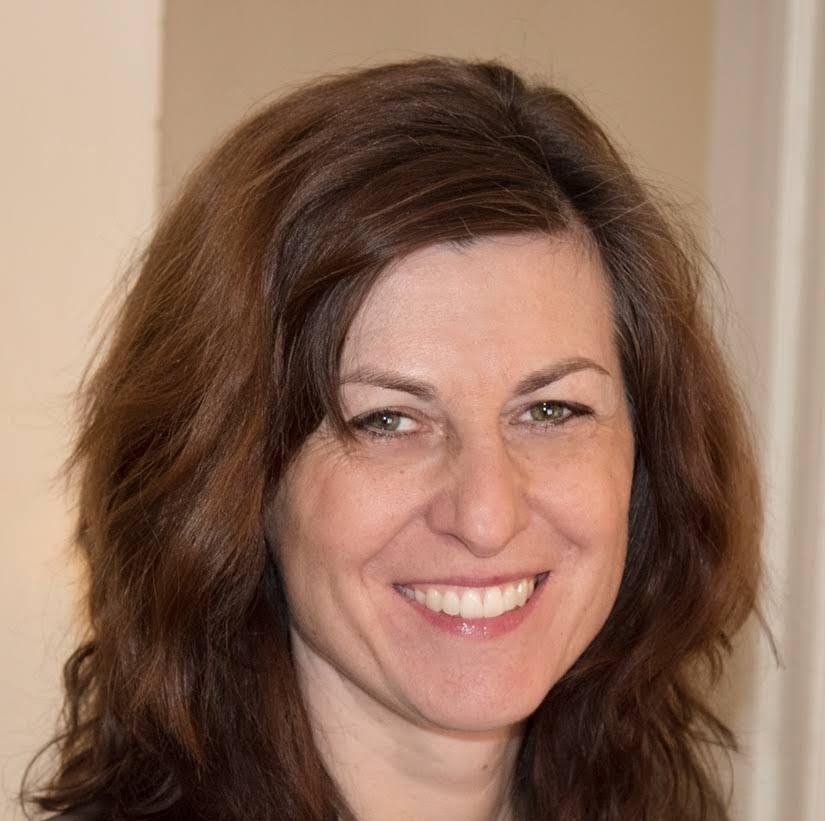
Marija Padjen
Marija Padjen is the director for the Centre for Innovation in Campus Mental Health and the chief clinical officer for the Canadian Mental Health Association – Ontario Division. She holds a BA in political science and history from McGill University, and a BSW and a MSW from York University. Prior to joining CMHA in 2017, Marija spent 18 years in the dementia field as a front-line social worker and as chief program officer for the Alzheimer Society of Toronto. She has a strong commitment to person-centred care and is a firm believer in collaborative relationship building.
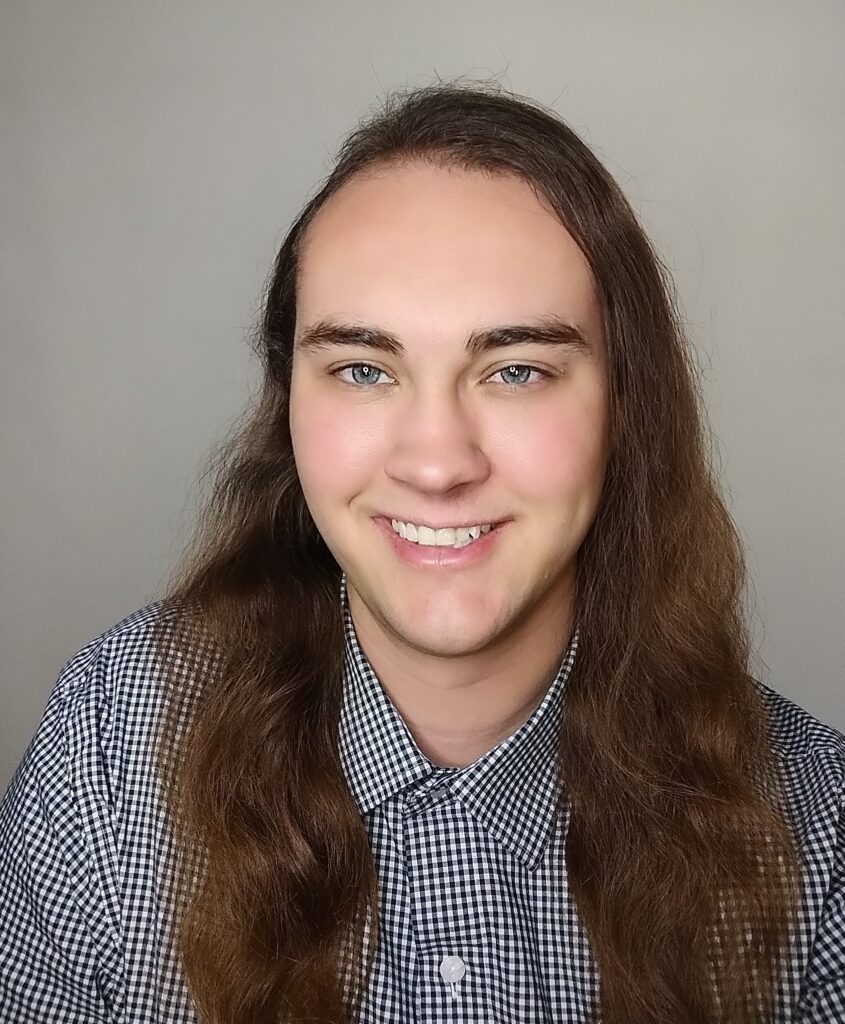
Mack Park
Mack Park, MSW (they/them) is the assistant director for the Association of Recovery in Higher Education (ARHE), supporting collegiate recovery programs and their staff across the U.S., Canada and the U.K. Mack graduated from the University of Windsor with their master of social work degree, a BA[H] with thesis in psychology (minors in Sociology and applied I.T.), and a business administration certificate. They also hold an advanced diploma in web development. Mack served as the program coordinator for 3.5 years at Lancers Recover, the student recovery program at the University of Windsor while also working with ARHE in a part-time capacity. They attribute student recovery programs to supporting their education and recovery pathways simultaneously and envision a future where these supports are accessible to all.
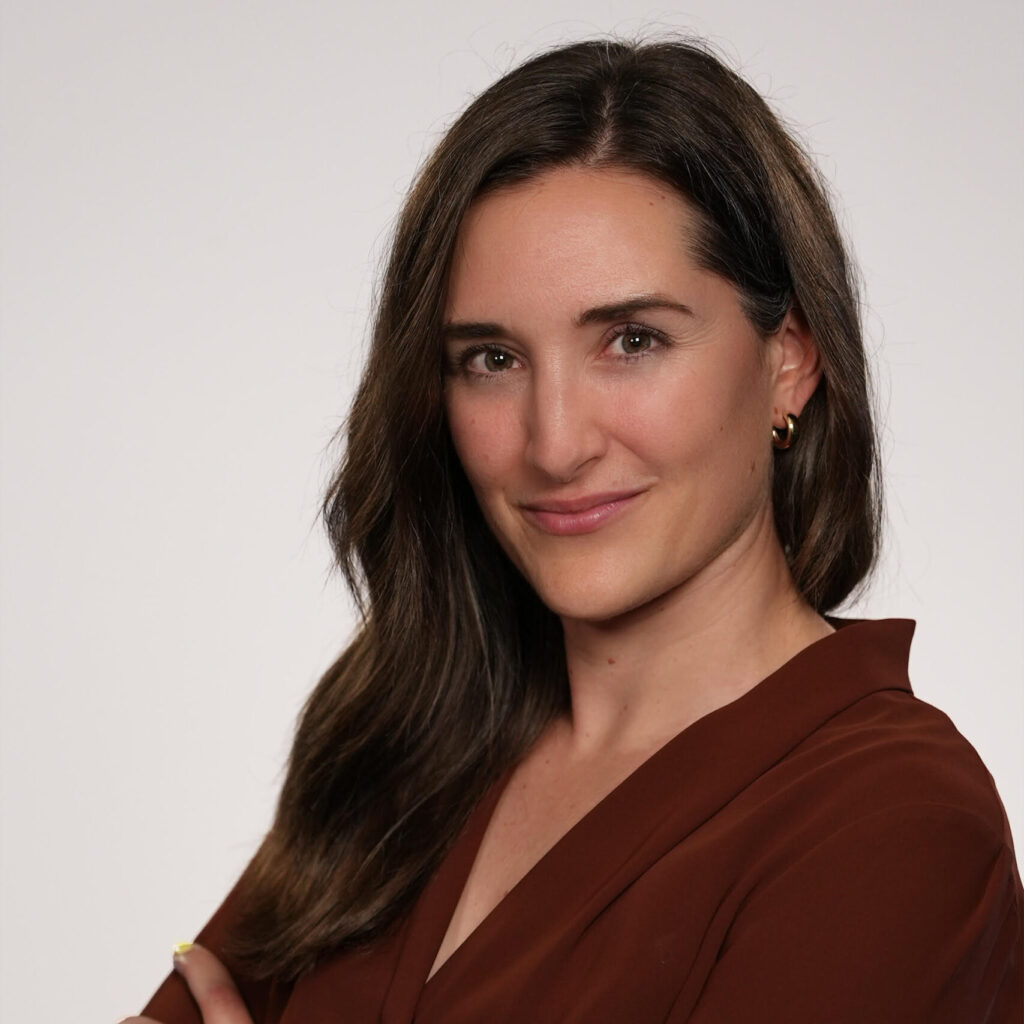
Lena Patterson
Lena Patterson is assistant dean, programs, at The G. Raymond Chang School of Continuing Education at Toronto Metropolitan University, where she provides strategic leadership in the delivery and development of programming. Lena started at TMU as program director, microcredentials where she established the award winning Curv microcredential program. Prior to The Chang School, Lena was a senior director at eCampusOntario, where she led the design and implementation of the Microcredentials Principles and Framework, and popularized the framework for cross sector use. Publications include Implementing a Competency-based Assessment Approach to Microcredentials and Is the Future Micro? Unbundling Learning for Access and Flexibility. She has served as president of the Ontario Council for University Lifelong Learning (OCULL) and co-chair of the UPCEA Council for Credential Innovation. Lena has a doctorate from Western University in educational leadership.
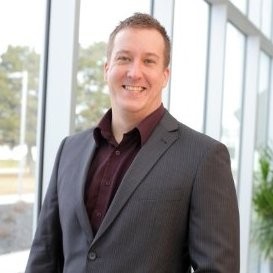
Kyle W. Paul
Kyle W. Paul is a senior leader in Canadian postsecondary education, currently serving as executive director of institutional planning, analysis and performance at Brock University. He provides strategic leadership in enrolment planning, academic renewal and institutional effectiveness, with a strong focus on data-informed decision making and system-wide improvement. Prior to joining Brock, Kyle held leadership and teaching roles at Humber College, including manager of data analysis and reporting and faculty member in the research analyst program. Over his career, he has taught research methods, communication and sociology at multiple institutions, bridging data strategy with front-line student learning. Kyle holds a master of arts in sociology from Western University and a BA from Brock University, and is a frequent presenter on planning, analytics and student mobility.
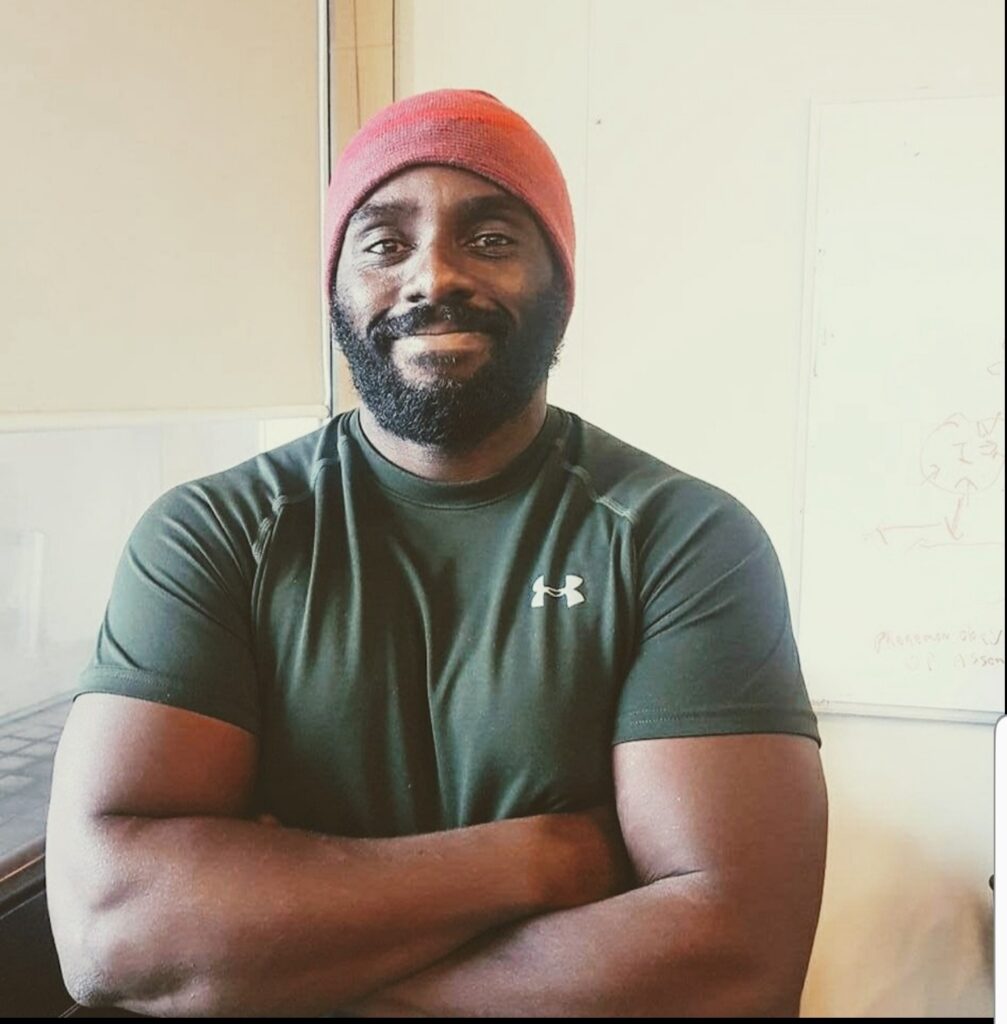
Raymond Peart
Raymond Peart is a Toronto-based PhD candidate whose dissertation examines how autistic university students experience stigma in “compassionate” and “inclusive” spaces. A program coordinator/data analyst with York University’s student accessibility services, he leads the Strengthening Transitions program. Raymond designs neurodiversity-affirming supports and builds data systems that track student pathways, turning evidence into practical change across intake, coaching and retention. As the father of an autistic teenager and a neurodiverse scholar himself, he brings lived experience alongside rigorous research. His teaching and program design centre Universal Design for Learning, equity and culturally responsive practice. Across roles, his aim is straightforward: remove structural barriers, improve transition and day-to-day experiences for autistic students and their families moving into and through postsecondary, and supporting academic environments in strengthening accountability and fairness.
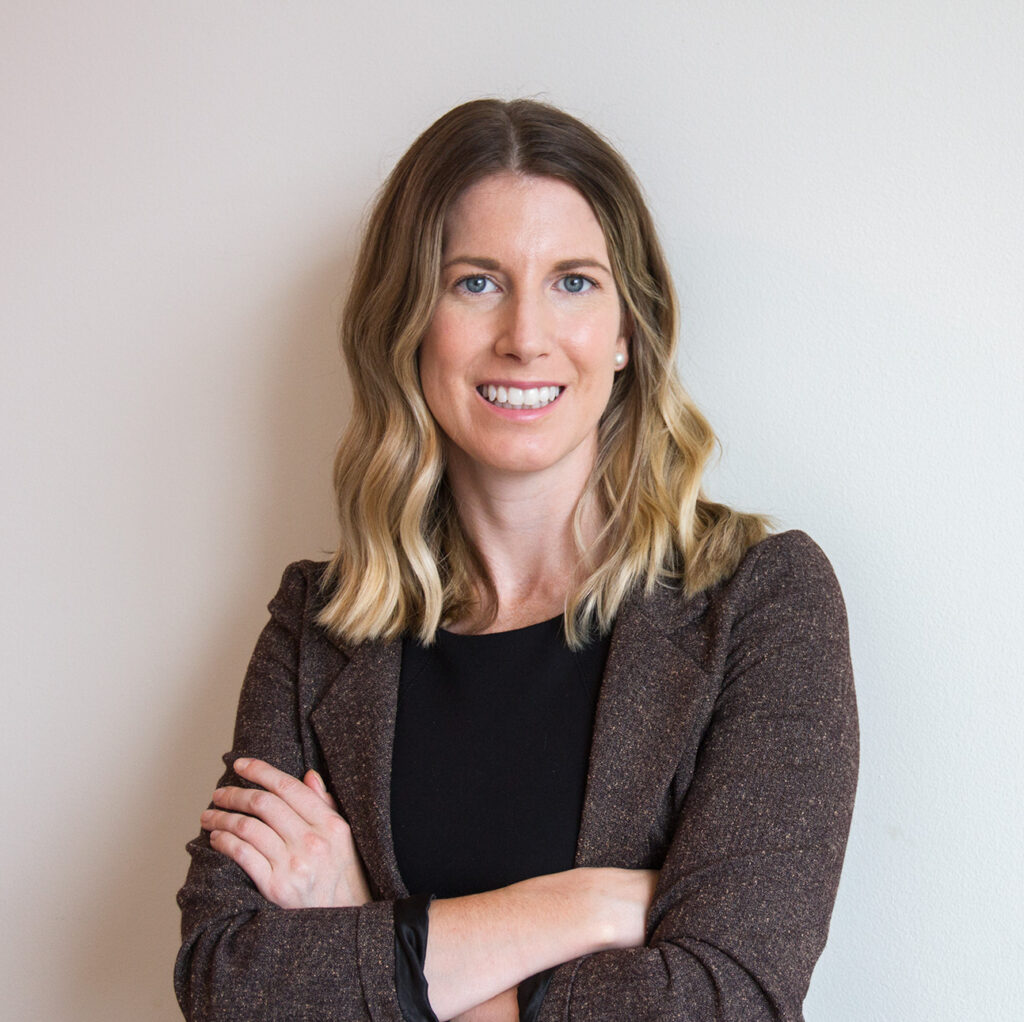
Jackie Pichette
As director of skills policy at RBC Thought Leadership, Jackie leads engagement and insights relating to education, workforce development and the relationship with Canadian prosperity. Working with policy makers, educators and employers, she drives research and dialogue to advance meaningful systems change. Prior to joining RBC Thought Leadership, Jackie was the director of policy, research & partnerships at the Higher Education Quality Council of Ontario, where she led research projects with community, government and educational partners advancing lifelong learning and educational data collection.
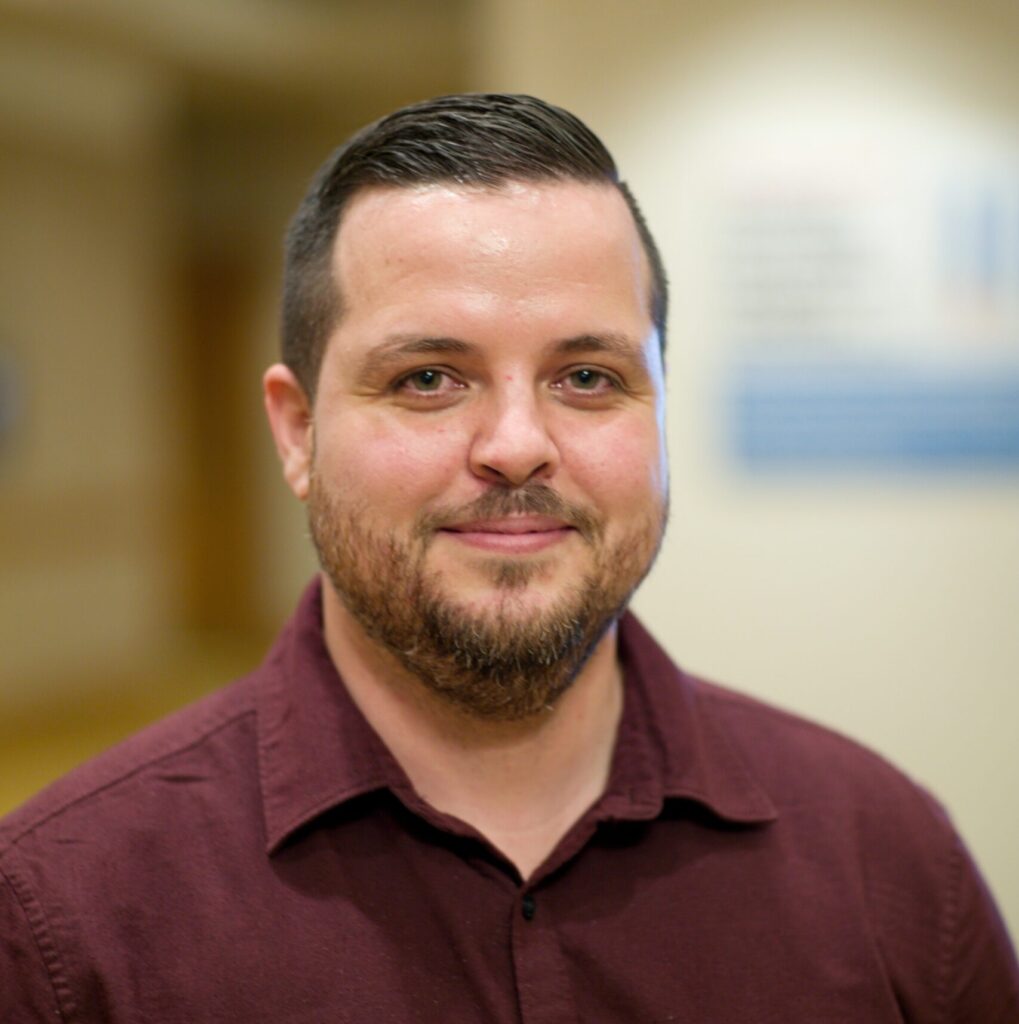
Roger Pizarro Milian
Roger Pizarro Milian is assistant director, student data + advanced analytics in the offices of the vice-provost, students & strategic enrolment management at the University of Toronto. He is also an adjunct professor at the University of Guelph, where his SSHRC-funded research examines how socio-economic background shapes postsecondary access and pathways in Ontario using novel administrative linkages. Roger has authored over 50 peer-reviewed studies and numerous policy reports, including research recognized with the 2023 ONCAT Transfer Research Award. His career spans government, academia and the private sector, including senior roles as chief, data development at Statistics Canada’s Centre for Labour Market Information and director of research insights at Academica Group, Canada’s leading PSE market research and consulting firm.
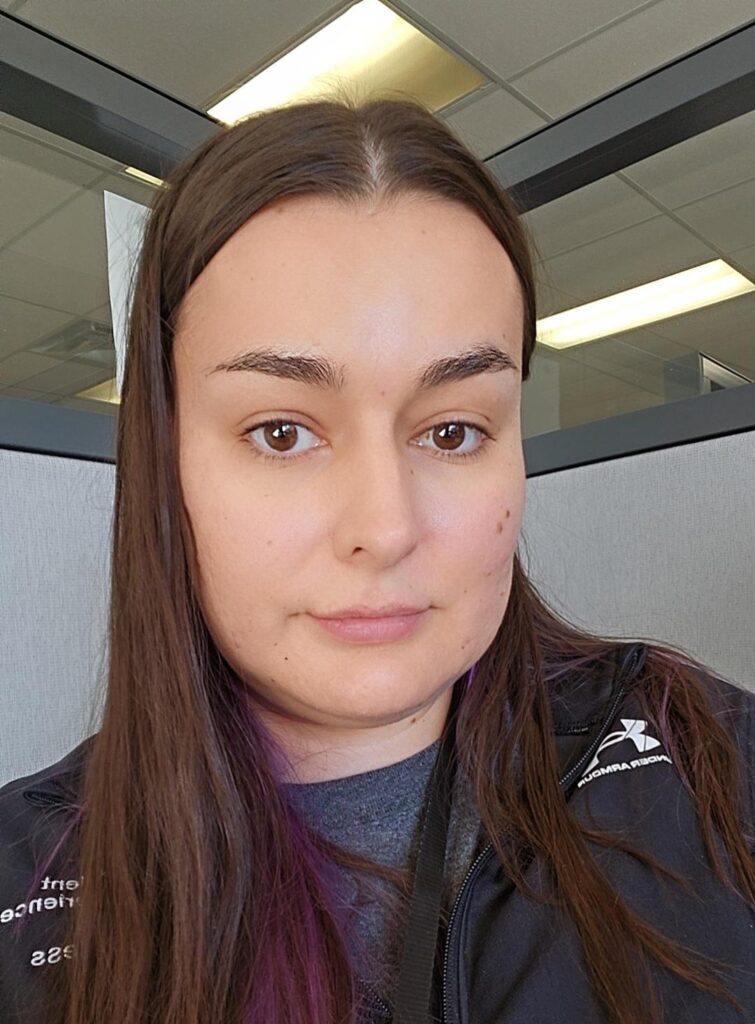
Hilary Pryce
Hilary Pryce holds a bachelor of arts, honors in psychology from York University and an advanced diploma in environmental technology from Centennial College. As a student at Centennial, she was the president of the Environmental Student Society which lead to the start of her career in the Office of Development running donor and alumni events. The transition to virtual programming during the pandemic became a catalyst for Hilary to combine her passions for technology and gaming with digital learning for students. Currently, Hilary curates a 16-week virtual onboarding program that focuses personal, academic and career success through learning modules, webinars and newsletters. Over two years, Hilary has transformed headSTART into a co-curricular digital badge offering new students a clear pathway from admission to first-year experience.

Ajay Rampersad
Ajay Rampersad is the program coordinator for competency-based education (CBE) in the Faculty of Health and Life Sciences at Humber Polytechnic. With over a decade of teaching experience in the postsecondary sector, he works alongside faculty and students across various programs to implement CBE approaches that are learner-centred and workforce-aligned. As a practitioner and advocate of lifelong learning, he is currently pursuing his doctorate in educational technology where he stands at the forefront of exploring how artificial intelligence can support competency-based assessment and curriculum design. His research stems from a deep commitment to building more equitable pathways for learners who have long been underserved by traditional education models.

Tanecia Rodriguez
Tanecia Rodriguez is a proud member of Kebaowek (Eagle Village) First Nation. She lives in Oshawa, the traditional territory of the Mississaugas of Scugog Island, and is a devoted wife and mother of three. As the eldest of five siblings and part of a large extended family, Tanecia deeply values family and community. She holds a bachelor of arts in cultural studies from Trent University and brings over 12 years of experience with Indigenous Services Canada. For more than eight years, she has worked directly with Indigenous students through her roles at the Metis Nation of Ontario and Centennial College. Her career reflects a strong commitment to supporting Indigenous citizens, Nations, communities, and Indigenous-serving organizations. Currently, Tanecia serves as the Indigenous outreach coordinator at Centennial College, where she focuses on increasing access to education and supporting students in navigating and persisting within colonial systems. She is known for building meaningful relationships through active listening, empathy and compassion. Tanecia believes that everyone and everything is a teacher. She values the opportunity to learn and grow alongside the learners and students she supports.
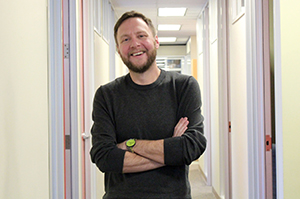
Matthew Ross
As director of communications for HEQCO, Matt is focused on connecting with diverse audiences and sharing the valuable research being done on postsecondary education in Ontario. Previously, Matt worked in public relations and corporate communications for government, not-for-profit, and arts and culture organizations including Boys and Girls Clubs of Canada, the Art Gallery of Ontario and the City of Brampton. Matt is constantly searching for new ways to connect and communicate important ideas and has been a workshop and conference presenter across Canada on a range of topics, including the importance of communicating and promoting research, youth and social media, and effective storytelling beyond traditional media.

Sadhna Sanichara
Sadhna is an academic skills coach with student accessibility services at York University, where she supports students in developing effective learning strategies and building academic confidence. Drawing on her professional and educational experience, she employs an approach that is student-centered and collaborative to empower students as they navigate their postsecondary experience. Sadhna works alongside students to help them identify their individual strengths, challenges and goals. By providing practical skills and resources, she fosters a supportive learning environment that encourages students to pursue their academic journey successfully.
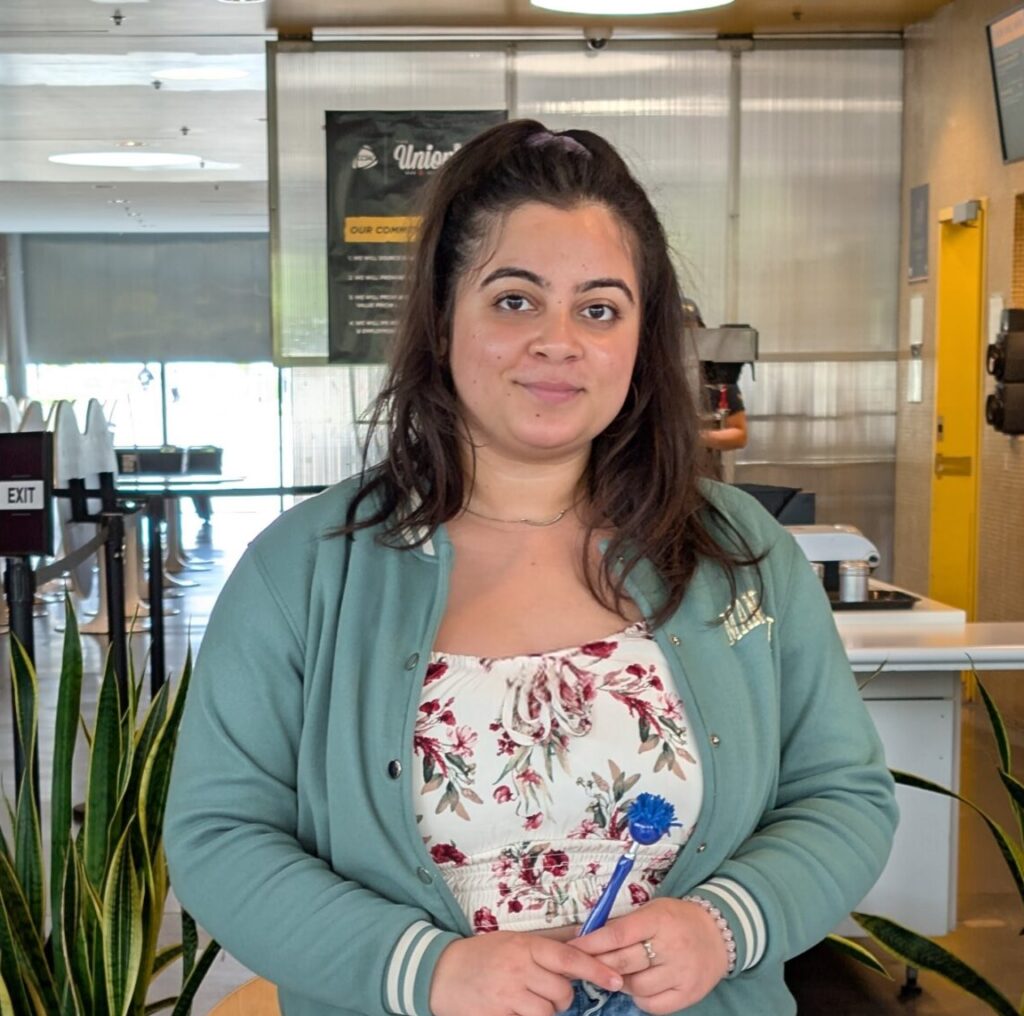
Sanakshika Sharma
I am Sanakshika Sharma, currently pursuing biotechnology – advanced at Centennial College, building on my bachelor’s degree in human genetics. My journey at Centennial began as a peer mentor, and since then I have taken on diverse leadership and academic roles, including president of the biotechnology student society, administrative officer of the environmental student society, and panelist for Centennial’s all-campus orientations. I have also contributed academically as a peer tutor for biotechnology and now serve as a math tutor. Beyond campus, I have volunteered as an autism support worker, gaining valuable experience in inclusivity and support. Alongside my scientific pursuits, I am a poet with over 30 poems published and several featured in anthologies. I am passionate about learning, leadership and community engagement.
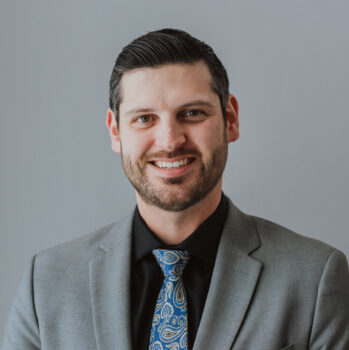
Matthew Slotwinski
Matthew Slotwinski has been the CEO of the Sarnia-Lambton Economic Partnership since 2024 and has worked for the organization since 2011. Matthew has helped the Sarnia-Lambton Hybrid Chemistry Cluster, Ontario’s Hydrogen Hub, and Sarnia-Lambton Energy & Chemistry Cluster gain international recognition, attracting new investment and employment to the Sarnia-Lambton area. He and his team have led workforce attraction and retention programming, supporting newcomers, youth and skilled labour across Sarnia-Lambton. Matthew graduated from the University of Western Ontario’s master of public administration program after completing his bachelor of commerce degree at the University of Guelph. He has a certificate in economic development from the University of Waterloo and Economic Developers Associations of Canada, and was named one of North America’s Top 50 Economic Developers (2021) by Consultant Connect.
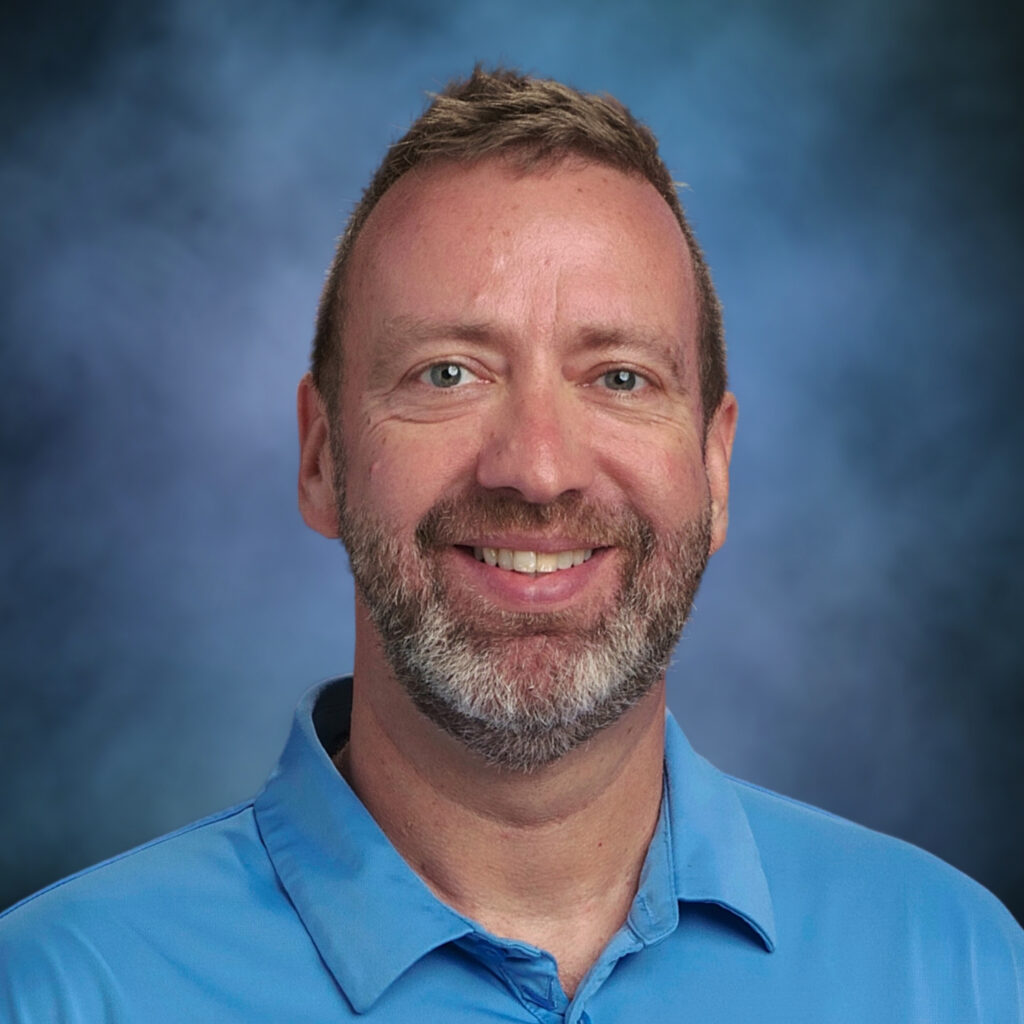
Eryn Smit
Eryn Smit is the superintendent of education, Indigenous education | equity, diversity, inclusion and justice with the Lambton Kent District School Board. He has worked in public education in Chatham and Sarnia for the past twenty years and has a BA from the University of Toronto and a MPEd from Western University. Eryn is the proud parent of three children and lives in Sarnia, Ontario with his partner and their rescue dog.
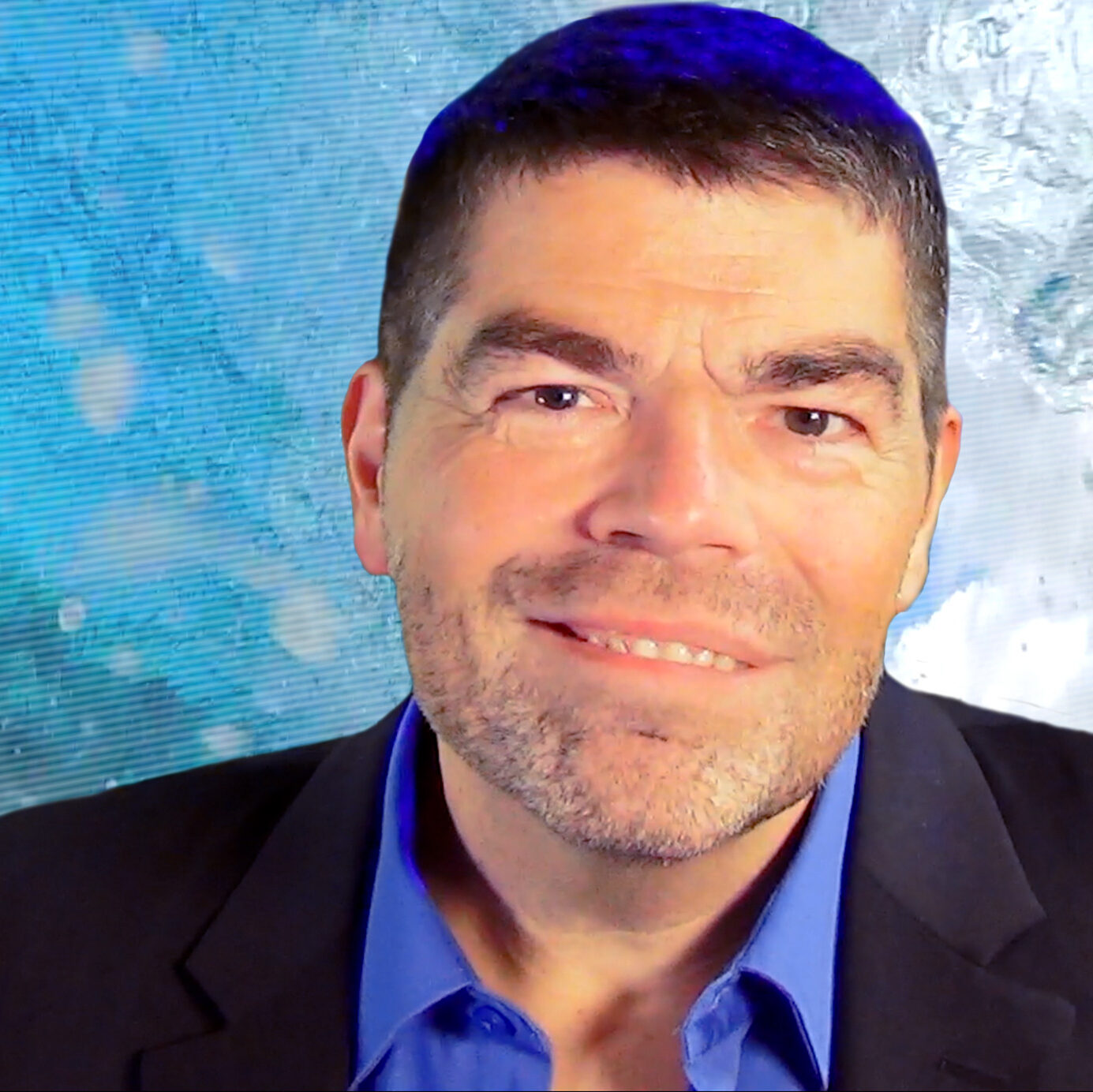
Ken Steele
Over the past three decades, Ken Steele has become Canada’s best-known higher education futurist, speaker and facilitator, addressing hundreds of audiences every year. His wide-ranging perspective has been shaped by award-winning careers as an academic, marketing strategist, market researcher, trendspotter and de facto journalist. His company, Eduvation Inc, provides context to college and university strategic planning and competitive positioning; advises provincial and federal government agencies and departments; publishes newsletters and a video podcast; and manages Eduvation Circles, a virtual community for thousands of forward-looking higher education leaders and professionals. Ken convenes ongoing national roundtables of postsecondary education marketers; writes daily critiques of PSE brand campaigns and advertising; and serves the sector by tracking timely data like COVID precautions, financial shortfalls, marketing expenditures, enrolment and more.

Judy Tavares
Judy Tavares is the manager of student mobility and pathways at Humber Polytechnic, where she oversees services for transfer and mature students, including PLAR/RPL, transfer credit and diploma-to-degree pathways. She is dedicated to fostering a transfer culture and creating seamless, equitable processes for recognizing prior academic and life experiences. Judy has also held several roles outside of Humber like PCCAT Board Member and member of ONCAT’s Heads of Transfer Advising (HOTA). Additionally, she has served as a member of the board of directors for the Canadian Association for Prior Learning and Assessment (CAPLA) for the past 5 years. She aims to contribute to lifelong learning initiatives provincially, nationally and internationally. With over 20 years of experience, she has served as an ESL instructor/language assessor, recruitment officer, admission officer, and manager of student recruitment. She holds a BA in linguistics, a TESL certificate, and an MEd in postsecondary studies.
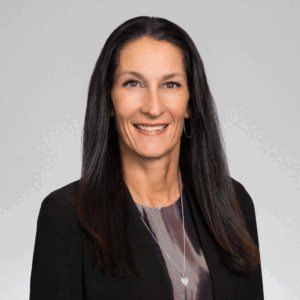
Kristie Tousignant
Kristie Tousignant is the associate vice-president of student health and wellness at Carleton University. With 20 years of experience in the hospital sector, she has worked as an emergency/intensive care nurse, clinical educator, and clinical manager in infection control, rehabilitation, acute stroke, and acute mental health units. She joined Carleton in 2019 as the director of health and counselling services and became the AVP of student health and wellness in 2022. In her current role, she oversees health and counselling services, the Paul Menton Centre, the FITA program, the attendant care program, the care and support team, health promotion, and student mental health policies, strategies, and initiatives. Kristie is dedicated to advancing student mental health by fostering equitable support systems and developing innovative care models to improve access to student services. She is deeply committed to leadership and the promotion of positive student mental health through the programs she leads and has earned several service excellence awards for her contributions.
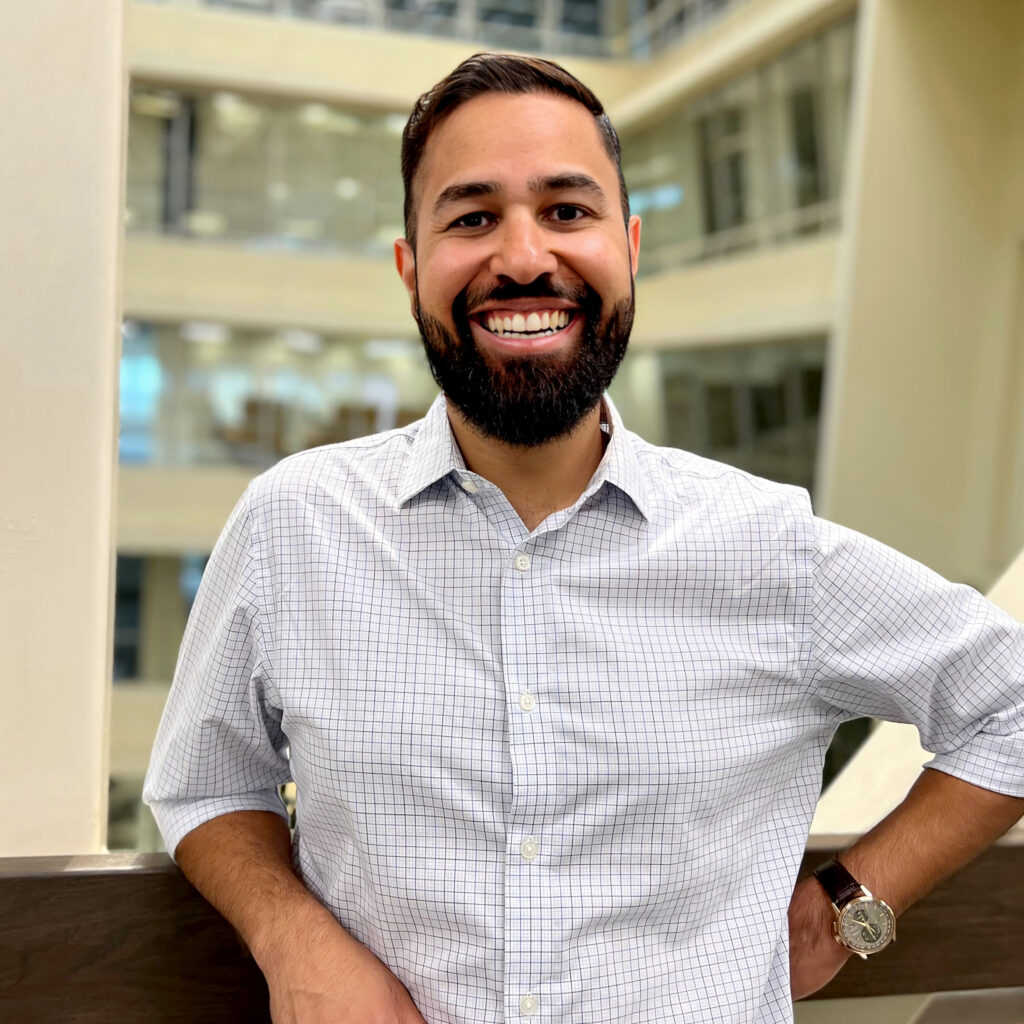
Rudi Wallace
Rudi Wallace is the president & CEO of Hamilton Community Foundation. He joined the foundation as vice-president, grants & community initiatives in 2020 and led initiatives like Indigenous relationship-building and partnerships, including stewardship of HCF’s Declaration of Action on Truth and Reconciliation; developed the foundation’s equity-granting strategy and advanced HCF’s multi-faceted education initiatives. Rudi has also had a lead role in a number of the foundation’s affordable housing initiatives. A native of Victoria, B.C., Rudi worked with the Victoria Foundation as grants manager, leading several portfolios including granting, Indigenous partnerships, food security, social purpose real estate and housing. Prior to working in community foundations, he served in senior leadership with The Mustard Seed food bank. In both Victoria and Hamilton, Rudi has demonstrated a deep commitment to community, both in his professional and volunteer roles which include serving on advisory groups, committees and boards with a focus on equity, justice and civic engagement.

Dr. Elyse Watkins
Dr. Elyse Watkins is an internationally published author, researcher and strategic leader with over a decade of experience enhancing equity and quality education across Canada. She has worked with national and provincial governing bodies to improve skills development and education for all learners. As director of education, awareness, and outreach at Toronto Metropolitan University, she leads the strategic vision for the education unit of the Office of the Vice-President, Equity and Community Inclusion (OVPECI). Dr. Watkins’s doctoral research, completed at the University of Toronto, focused on examining Ontario’s learning priorities during the COVID-19 pandemic using an equity-based approach. She also holds a master’s degree in international education policy from Harvard University and earned her bachelor of health sciences (honours) from McMaster University.
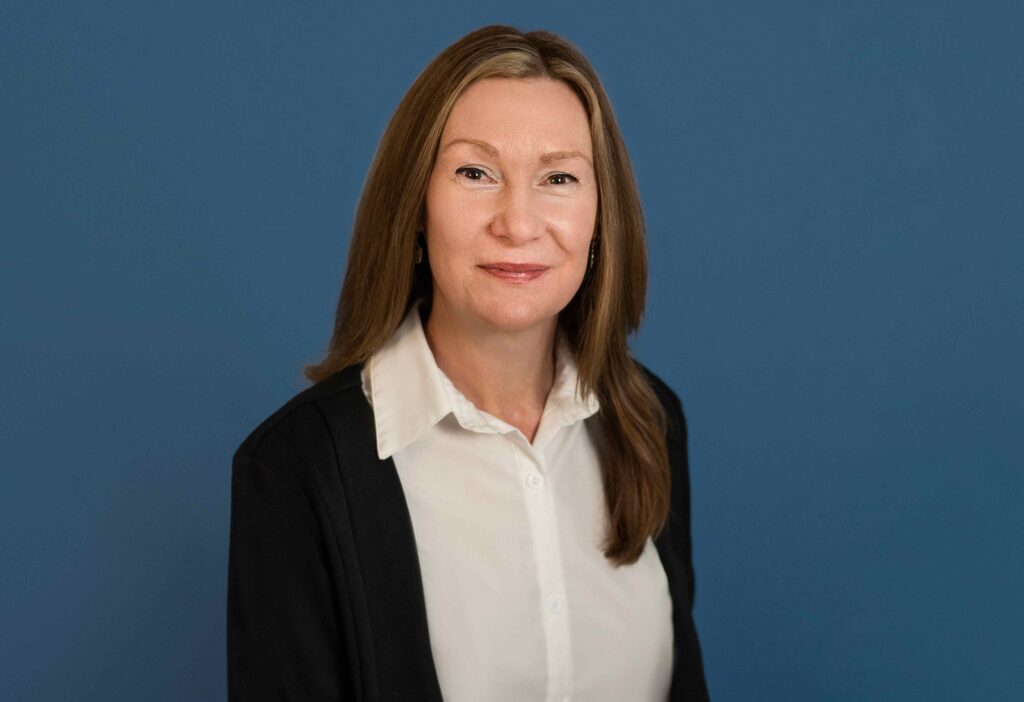
Lori Webster
Lori Webster has been supporting newcomers to Canada to succeed for 18 years at the Welland Multicultural Centre in Niagara Region, coordinating a variety of projects at both the federal and provincial levels. Since 2018 those projects have focused on providing information and advocacy to have international credentials recognized and meet the requirements of regulatory bodies to become licensed in regulated professions in Ontario or to choose an alternative related profession. A recent project, the IEHP Hub Pilot Project, is funded in part by the Government of Canada’s Foreign Credential Recognition Program, and serves to be an information hub for the success of internationally educated health professionals with the potential to be replicated at the project’s conclusion. Supporting newcomers to be able to contribute their valued skills in Canada is a win for everyone.

Alastair Woods
Alastair Woods supports the HEQCO research team by developing policy lenses and frameworks for their projects. Alastair brings insight and experience from over a decade in Ontario’s postsecondary education system; he previously served in various roles at the Ministry of Colleges and Universities (MCU), the Ontario Council for Articulation and Transfer (ONCAT), the Council of Ontario Universities (COU) and the Canadian Federation of Students-Ontario (CFS-O). He has also worked independently with colleges, universities and other stakeholders as a consultant, using design-thinking to develop new approaches to accommodations for students with disabilities. Most recently, Alastair served as senior policy advisor on the MCU Secretariat for the Blue-Ribbon Panel on Postsecondary Education Financial Sustainability.
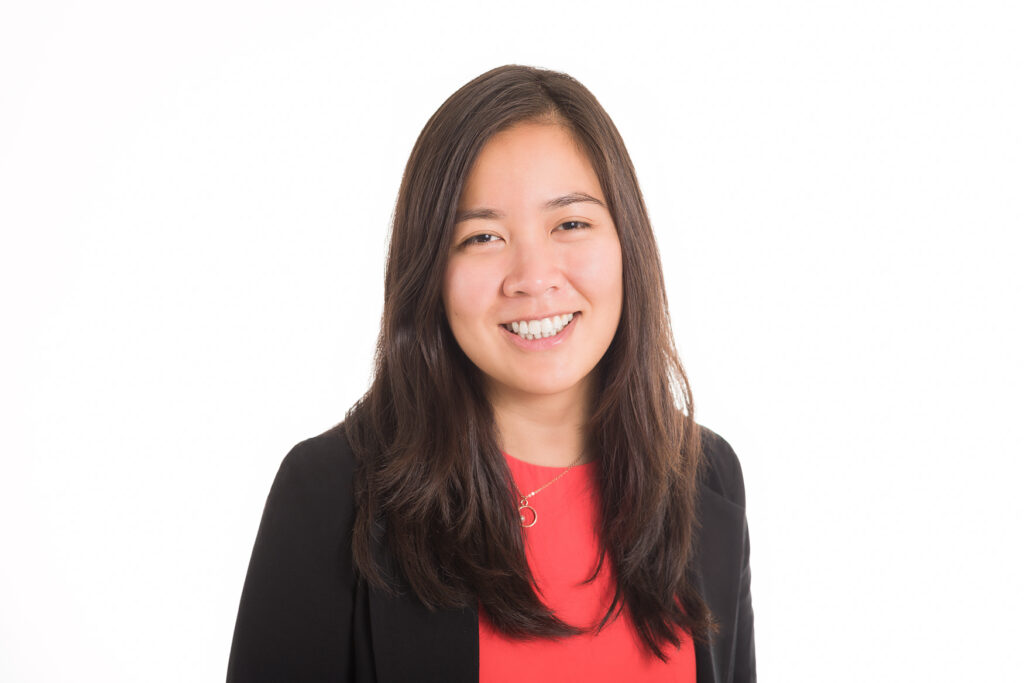
Catherine Yeh
Catherine Yeh is a researcher at the Social Research and Demonstration Corporation (SRDC), where she works on projects in the education portfolio. She received her PhD in sociology from the University of Toronto.
